H.E Uhuru Kenyatta
President of Republic of Kenya

Uhuru Kenyatta is the fourth and current President of the Republic of Kenya and Commander-in-Chief of the armed forces. He served as the Member of Parliament (MP) for Gatundu South from 2002 to 2013. Currently the party leader and a member of the Jubilee Party of Kenya. He is the son of Jomo Kenyatta, Kenya's first President. He was sworn in on 28 November 2017 for his second presidential term. During his inaugural speech, Uhuru promised economic transformation through Vision 2030, unity among all Kenyans, free maternal care and that he will serve all Kenyans. He also promised to improve the standards of education in Kenya and free maternal care in all public health facilities, a move that was welcomed by many Kenyans.
“I came up with four responses to your concerns. I call them the Big Four: food security, affordable housing, manufacturing, and affordable healthcare for all.”
Hon. Janet Kataaha Museveni
First Lady of Uganda and the Minister for Education and Sports
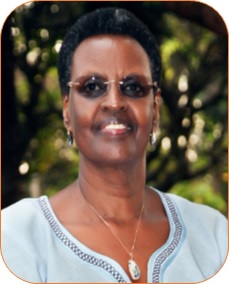
Born in Ntungamo District in South Western Uganda, Hon. Janet Kataaha Museveni is married to H.E. Gen. Yoweri Kaguta Museveni President of the Republic of Uganda. Together they have four children and fifteen grandchildren. She is currently the Minister of Education and Sports in Uganda. In 2009 to 2016 she was Minister for Karamoja Affairs where she was Involved in guiding Government Development Programmes in the Karamoja Sub Region. Providing oversight and supervisory role over the implementationof all government projects and programmes in the region including education, health, water and sanitation, wealth creation and agriculture. She is also the Member of Parliament for Ruhaama County Ntungamo District. She has made a tremendous contribution to the transformation of the livelihood of the people of Ruhaama County through her various interventions namely: Construction of school classrooms, renovation and equipping of health centres, provision of micro credit to youth, women and men groups, introduction of income generating projects for the most vulnerable, improvement in agriculture and environment, expansion of rural electrification, improving the road network in the County and training and empowering the people with life skills for poverty eradication.
Hon. Bright Msaka, MP
Minister of Education, Science and Technology, Malawi

Honourable Bright Msaka, SC, was appointed Minister of Education, Science and Technology of the Republic of Malawi on the 16th of July, 2017 after having served as Minister of Natural Resources, Energy and Mining from 10th April, 2015.
Before becoming Minister of Energy, Natural Resources and Energy, Honourable Msaka, SC, served for 10 months as Minister of Lands, Housing and Urban Development. From 2004 to 2013, Honourable Msaka, SC, was Chief Secretary for the Government of Malawi, and Head of the Malawi Public Service. Prior to that Honourable Msaka, SC, served as Malawi’s High Commissioner to the United Kingdom from 1998 to 2003, with simultaneous accreditation as Ambassador to Norway, Sweden, Denmark, Finland, Portugal and Iceland. From 1994 to 1998, Honourable Msaka, SC, was Malawi’s High Commissioner to Canada.
Honourable Bright Msaka, SC, is a Lawyer with the Status of Senior Counsel. During his career as a Lawyer in private practice, Hon. Bright Msaka, SC, also acted as Examiner of Company Law from 1983 to 1999, Law Lecturer at the University of Malawi, and as a Notary Public.
Honourable Msaka has a Law Degree from the University of Malawi and a Masters Degree in Global Management from the University of Salford, United Kingdom.
Amb. Amina Chawahir Mohamed,
Cabinet Secretary,Ministry Education

Amina Chawahir Mohamed is a Kenyan lawyer, diplomat and politician. She is presently serving as the Cabinet Secretary for Education in Kenya. She previously served as chairwoman of the International Organization for Migration and the World Trade Organization’s General Council, as well as Assistant Secretary-General and Deputy Executive Director of the United Nations Environment Programme. She served as the Cabinet Secretary for Foreign Affairs of Kenya from May 2013 to February 2018, when President Uhuru Kenyatta, after re-election, moved her to the Education docket.
Hon. Naledi Pandor
Minister of Science and Technology, Republic of South Africa
 Naledi Pandor is South Africa's Minister of Science and Technology. A life of exile from 1961 until 1984 gave her education an international dimension. She holds a Bachelor of Arts degree from the University of Botswana and Swaziland, and a Master’s degree in Education from the University of London. In 1992 she studied for a Diploma in Higher Education, Administration and Leadership at Bryn Mawr in the USA. n 1997, she completed a second Master’s degree in Linguistics at Stellenbosch University and a Diploma in Leadership in Development at the Kennedy School of Government at Harvard while serving as a Member of Parliament (MP). She became an MP in 1994 and has gained a wide range of experience in positions of public office, including as Deputy Chief Whip of the African National Congress in the National Assembly from 1995 to 1998. She was Deputy Chair of the National Council of Provinces in 1998, and its Chair from 1999 to 2004.
Naledi Pandor is South Africa's Minister of Science and Technology. A life of exile from 1961 until 1984 gave her education an international dimension. She holds a Bachelor of Arts degree from the University of Botswana and Swaziland, and a Master’s degree in Education from the University of London. In 1992 she studied for a Diploma in Higher Education, Administration and Leadership at Bryn Mawr in the USA. n 1997, she completed a second Master’s degree in Linguistics at Stellenbosch University and a Diploma in Leadership in Development at the Kennedy School of Government at Harvard while serving as a Member of Parliament (MP). She became an MP in 1994 and has gained a wide range of experience in positions of public office, including as Deputy Chief Whip of the African National Congress in the National Assembly from 1995 to 1998. She was Deputy Chair of the National Council of Provinces in 1998, and its Chair from 1999 to 2004.
Her experience in education policy planning made her a welcome appointment as South Africa's Minister of Education from 2004 to 2009. She was appointed Minister of Science and Technology in May 2009, and Minister of Home Affairs in October 2012. Following South Africa's 5th democratic elections, she was reappointed Minister of Science and Technology in May 2014. She holds honorary doctorates from the Cape Peninsula University of Technology, and Stellenbosch University.
Prof. Mabel Opanda Imbuga,
Vice Chancellor, Jomo Kenyatta University of Agriculture and Technology
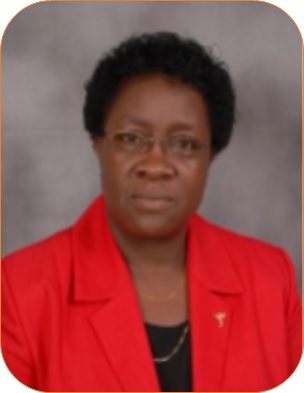 Prof. Mabel Imbuga is the Vice Chancellor of Jomo Kenyatta University of Agriculture and Technology, a public university in Kenya, well known for its leading role in Agriculture, Science, Technology and Innovation in the African Continent. She is a Professor of Biochemistry, with over 35 years of teaching, scholarly and leadership experience. She holds several positions both nationally and internationally, among them, Chairperson Regional Universities Forum for Capacity Building in Agriculture (RUFORUM),
Prof. Mabel Imbuga is the Vice Chancellor of Jomo Kenyatta University of Agriculture and Technology, a public university in Kenya, well known for its leading role in Agriculture, Science, Technology and Innovation in the African Continent. She is a Professor of Biochemistry, with over 35 years of teaching, scholarly and leadership experience. She holds several positions both nationally and internationally, among them, Chairperson Regional Universities Forum for Capacity Building in Agriculture (RUFORUM),
Member of Pan African University Council, Chairperson Kenya University and Colleges Placement Board, Board Member Kenya Agricultural and Livestock Research Organization (KALRO), Commissioner- Commission for University Education (CUE)-Kenya, Board Member Universities, Business and Research in Agricultural Innovation (UniBRAIN), Jury member L’Oréal for Women in Science (FWIS), Scientific Elder, (IDRC), Immediate former Chairperson of Inter University Council for Eastern
Africa, Immediate former chairperson of Vice Chancellors Committee- Public Universities Kenya, and Director International Network of Women Engineers and Scientists representing Anglophone Africa.
Prof Imbuga is a member of several professional associations across the world, a former president and founder of the African Women in Science and Engineering (AWSE); immediate former Director of International Network of Women Engineers and Scientists ; Member, Global Consortium of Higher Education and Research for Agriculture (GCHERA) and member, International Conference of Women Engineers and Scientists (ICWES) and Research Scientist- ICIPE.
Prof. Imbuga has extensive knowledge and demonstrative experience in the higher education system, having scaled the ranks from technical roles starting as Assistant Lecturer, to leadership roles a Chairperson of Department, Dean, Director and Deputy Vice Chancellor in charge of Academic affairs before she took on her current appointment .
Imbuga is a key resource in strategic management and leadership, with an MBA in strategic management. She is a Pan Africanist and a key reformer in the higher education setup in Africa, having successfully driven a number of key projects, including strengthening the higher education stakeholder relations in Africa and the recent launch of Pan African University Institute hub of Basic Science Technology and Innovation (PAUSTI), housed in JKUAT, Kenya. She is a mover and doer of successful African projects in higher education, resulting in increased access and transformation of the higher education. She has participated in various forums and key Government seminars as a motivational speaker for upcoming leaders and scientists. Imbuga has over 10 funded projects and several publications. She has attracted international funding for various projects cutting across various disciplines.
.
Prof. Peter Mulwa Felix Mbithi
Vice-Chancellor, University of Nairobi
 Prof. Peter Mulwa Felix Mbithi is the Vice-Chancellor, at the University of Nairobi and Professor of Veterinary Surgery, University Of Nairobi (UoN). Born in 1956, Prof. Mbithi graduated from the University of Nairobi (UoN) with a Bachelor of Veterinary Medicine (BVM) in 1983 and an MSc. in Clinical Studies in 1985. In 1987, Prof. Mbithi graduated with a Master of Veterinary Science (M.V.Sc. Veterinary Anesthesiology Radiology and Surgery) from University of Saskatchewan, Canada. Between 1986 and 1987, he did a Surgical Residency – Advanced Surgical Specialty Program at the Veterinary Teaching Hospital, Western College of Veterinary Medicine, University of Saskatchewan, Saskatoon, Canada. In 1995, Prof. Mbithi completed his PhD at UoN. Between 1995 and 2003 he was Chairman, Department of Clinical Studies, in 2003 he was elected as the Dean, Faculty of Veterinary Medicine until he was appointed as the Principal, College of Agriculture and Veterinary Sciences in 2004. In 2005 he was competitively appointed as Deputy Vice-Chancellor, Administration and Finance, a position he held until 2015. He was appointed the Vice Chancellor University of Nairobi January 6, 2015. He has supervised MSc students and PhD students and has published extensively in peer-reviewed journals and is a member of several professional organizations. Clinical veterinary medicine and orthopeadic surgery, wounding and traumatology with special interest in lameness, joint surgery and athritides are some of Prof. Mbithi research interests.
Prof. Peter Mulwa Felix Mbithi is the Vice-Chancellor, at the University of Nairobi and Professor of Veterinary Surgery, University Of Nairobi (UoN). Born in 1956, Prof. Mbithi graduated from the University of Nairobi (UoN) with a Bachelor of Veterinary Medicine (BVM) in 1983 and an MSc. in Clinical Studies in 1985. In 1987, Prof. Mbithi graduated with a Master of Veterinary Science (M.V.Sc. Veterinary Anesthesiology Radiology and Surgery) from University of Saskatchewan, Canada. Between 1986 and 1987, he did a Surgical Residency – Advanced Surgical Specialty Program at the Veterinary Teaching Hospital, Western College of Veterinary Medicine, University of Saskatchewan, Saskatoon, Canada. In 1995, Prof. Mbithi completed his PhD at UoN. Between 1995 and 2003 he was Chairman, Department of Clinical Studies, in 2003 he was elected as the Dean, Faculty of Veterinary Medicine until he was appointed as the Principal, College of Agriculture and Veterinary Sciences in 2004. In 2005 he was competitively appointed as Deputy Vice-Chancellor, Administration and Finance, a position he held until 2015. He was appointed the Vice Chancellor University of Nairobi January 6, 2015. He has supervised MSc students and PhD students and has published extensively in peer-reviewed journals and is a member of several professional organizations. Clinical veterinary medicine and orthopeadic surgery, wounding and traumatology with special interest in lameness, joint surgery and athritides are some of Prof. Mbithi research interests.
Dr. Mercy Karanja
Senior Program officer/Senior Regional Advisor in Agricultural Development, Bill and Melinda Gates foundation
 Mercy Karanja is a Senior Program officer/Senior Regional Advisor in Agricultural Development at the Bill and Melinda Gates foundation. In her Senior Regional Advisor (SRA) role, she develops and manages investments to strengthen national institutions and systems from the national to local level to ensure enhanced service delivery to small holder farmers. She led the establishment of the Agricultural Development Division (ADD), part of the Tanzania Presidential Delivery Bureau (PDB). She supports the Ag team in building in-country relationships that are critical to the success of the foundation work, tracking and monitoring investments to ensure foundation investments are catalytic and leverage other in-country resources in the sector. She also develops and manages a portfolio of institutional strengthening investments in extension/farmer organizations and higher education space to respond to and needs of small holder farmers. Mercy has a diversified management and leadership experience across multiple industries, academia, public, private, non- profit and donor partners. Prior to joining the foundation in 2008, she was a Global Development Policy Coordinator with the International Federation of Agricultural Producers (IFAP) in Paris. She served in the Kenya Ministry of Agriculture/livestock, lecturer at Egerton University and Chief Executive of the Kenya National Federation of Agricultural Producers and served in many international committees to tackle rural poverty. She received her Bachelor's degree in Agriculture from the University of Nairobi and Post graduate in Extension and rural development from Reading University UK. Her passion is to improve the livelihoods of farmers.
Mercy Karanja is a Senior Program officer/Senior Regional Advisor in Agricultural Development at the Bill and Melinda Gates foundation. In her Senior Regional Advisor (SRA) role, she develops and manages investments to strengthen national institutions and systems from the national to local level to ensure enhanced service delivery to small holder farmers. She led the establishment of the Agricultural Development Division (ADD), part of the Tanzania Presidential Delivery Bureau (PDB). She supports the Ag team in building in-country relationships that are critical to the success of the foundation work, tracking and monitoring investments to ensure foundation investments are catalytic and leverage other in-country resources in the sector. She also develops and manages a portfolio of institutional strengthening investments in extension/farmer organizations and higher education space to respond to and needs of small holder farmers. Mercy has a diversified management and leadership experience across multiple industries, academia, public, private, non- profit and donor partners. Prior to joining the foundation in 2008, she was a Global Development Policy Coordinator with the International Federation of Agricultural Producers (IFAP) in Paris. She served in the Kenya Ministry of Agriculture/livestock, lecturer at Egerton University and Chief Executive of the Kenya National Federation of Agricultural Producers and served in many international committees to tackle rural poverty. She received her Bachelor's degree in Agriculture from the University of Nairobi and Post graduate in Extension and rural development from Reading University UK. Her passion is to improve the livelihoods of farmers.
Prof Anil K. Gupta
Founder, Honey Bee Network (India)
 Professor Anil K Gupta is a visiting faculty, Indian Institute of Management, Ahmedabad; after retiring recently and at IIT Bombay. He has a Ph.D. (Management), MSc. Biochemical Genetics, Fellow, National Academy of Agricultural Sciences; Fellow, the World Academy of Art and Science, California 2001. He is the founder of Honey Bee Network National Innovation Foundation, Nifindia.org, SRISTI.org and, GIAN.org; CSIR Bhatnagar Fellow, 2018-21. He facilitated Festival of Innovation & Entrepreneurship through NIFindia.org, hosted by the office of President of India at The President's House (March 19-23, 2018); pursues research on sustainable natural and institutional resource management, building global value chain to get the grassroots and youthful creativity its due; link technology youth with the problems of MSME, and other innovators (techpedia.sristi.org), unlocking corporate and public/private institutional creativity through empathetic open reciprocal innovations, support strategic organizations for making breakthroughs innovations; SRISTI awards young tech students gyti.techepdia.in. Lectured on unleashing innovation potential at Viacom, Endurance Technology, DHL, JCB, SAP Labs, ORACLE, CISCO, HP, GE Research Centre, Siemens, Volvo, Biocon Bristol-Myers Squibb Research Center, Dr Reddy’s Lab, Zydus Cadilla, JSW, D E Shaw investment firm, Tata Innovation Awards, ZEF, CGIAR, FAO, IFAD, World Bank, LBSNAA, IISc, ISI, IITs, JNU, Harvard, MIT Boston, Indian Oil, Entrepreneurs Organization, InnoHealth International Conference, Evolve Brand, Global Network Summit, Global IP Convention 2018, National Conference on Technological empowerment of women, Barclays Speaks, Welcome Trust/DBT India Alliance, INCF: Porter Prize. He has been a Board Member of GMATF; NIPER, Mohali, Planning Board, Central University of Jammu; Member, Committee to review the functioning of Central Insecticides Board & Registration, Chairman (2017018), CSIR-800 SMC committee, Member, Research Council of CSIR-NEIST, Jorhat; Member, Working Group on Development Agenda for New India for Science & Technology Sector, Member, Committee for Evaluation of ITRA Scheme, Member, committees on Artificial Intelligence. Ministry of Electronics & IT (MeitY), Chairman, Selection Committee for Plant Genome Saviour Community Award 2015-18, Member, Screening Committee of CSIR-NMITLI IOP, Member, Selection Committee for Visitor’s Awards, 2015-18, Member, JBA 2018 Selection Committee meeting of Science and Technology Distinguished Visiting Professor, IIT Bombay, 2017-18. He is an editor, Honey Bee, a quarterly newsletter on grassroots green innovations, 1990 – present; Visiting Professor, Centre for Management in Agriculture, Indian Institute of Management, Ahmedabad, retired after teaching for 36 years; Member Advisory Committee, Future Innovation Forum, Seoul, 2016-2018; Member, IIMA Board of Directors, 2015-2017, Member, advisory board, Global Innovation Centre, UNICEF, New York (2015-2016); Member, Board of Directors in EdCIL (India) 2013 - 2016; Member, National Innovation Council, Chaired by Adviser to Prime Minister (2010-2013); Director, Dena Bank, 2006-09; Kasturbhai Lalbhai Chair in Entrepreneurship, IIMA (2003-2008); Chairperson, Ravi J Matthai Centre for Educational Innovation, IIMA, 1993-1994; Chairperson, Research and Publications, IIMA, 1990 -92; Exec Vice Chair, National Innovation Foundation (2000-2018); Coordinator, SRISTI and GIAN.
Professor Anil K Gupta is a visiting faculty, Indian Institute of Management, Ahmedabad; after retiring recently and at IIT Bombay. He has a Ph.D. (Management), MSc. Biochemical Genetics, Fellow, National Academy of Agricultural Sciences; Fellow, the World Academy of Art and Science, California 2001. He is the founder of Honey Bee Network National Innovation Foundation, Nifindia.org, SRISTI.org and, GIAN.org; CSIR Bhatnagar Fellow, 2018-21. He facilitated Festival of Innovation & Entrepreneurship through NIFindia.org, hosted by the office of President of India at The President's House (March 19-23, 2018); pursues research on sustainable natural and institutional resource management, building global value chain to get the grassroots and youthful creativity its due; link technology youth with the problems of MSME, and other innovators (techpedia.sristi.org), unlocking corporate and public/private institutional creativity through empathetic open reciprocal innovations, support strategic organizations for making breakthroughs innovations; SRISTI awards young tech students gyti.techepdia.in. Lectured on unleashing innovation potential at Viacom, Endurance Technology, DHL, JCB, SAP Labs, ORACLE, CISCO, HP, GE Research Centre, Siemens, Volvo, Biocon Bristol-Myers Squibb Research Center, Dr Reddy’s Lab, Zydus Cadilla, JSW, D E Shaw investment firm, Tata Innovation Awards, ZEF, CGIAR, FAO, IFAD, World Bank, LBSNAA, IISc, ISI, IITs, JNU, Harvard, MIT Boston, Indian Oil, Entrepreneurs Organization, InnoHealth International Conference, Evolve Brand, Global Network Summit, Global IP Convention 2018, National Conference on Technological empowerment of women, Barclays Speaks, Welcome Trust/DBT India Alliance, INCF: Porter Prize. He has been a Board Member of GMATF; NIPER, Mohali, Planning Board, Central University of Jammu; Member, Committee to review the functioning of Central Insecticides Board & Registration, Chairman (2017018), CSIR-800 SMC committee, Member, Research Council of CSIR-NEIST, Jorhat; Member, Working Group on Development Agenda for New India for Science & Technology Sector, Member, Committee for Evaluation of ITRA Scheme, Member, committees on Artificial Intelligence. Ministry of Electronics & IT (MeitY), Chairman, Selection Committee for Plant Genome Saviour Community Award 2015-18, Member, Screening Committee of CSIR-NMITLI IOP, Member, Selection Committee for Visitor’s Awards, 2015-18, Member, JBA 2018 Selection Committee meeting of Science and Technology Distinguished Visiting Professor, IIT Bombay, 2017-18. He is an editor, Honey Bee, a quarterly newsletter on grassroots green innovations, 1990 – present; Visiting Professor, Centre for Management in Agriculture, Indian Institute of Management, Ahmedabad, retired after teaching for 36 years; Member Advisory Committee, Future Innovation Forum, Seoul, 2016-2018; Member, IIMA Board of Directors, 2015-2017, Member, advisory board, Global Innovation Centre, UNICEF, New York (2015-2016); Member, Board of Directors in EdCIL (India) 2013 - 2016; Member, National Innovation Council, Chaired by Adviser to Prime Minister (2010-2013); Director, Dena Bank, 2006-09; Kasturbhai Lalbhai Chair in Entrepreneurship, IIMA (2003-2008); Chairperson, Ravi J Matthai Centre for Educational Innovation, IIMA, 1993-1994; Chairperson, Research and Publications, IIMA, 1990 -92; Exec Vice Chair, National Innovation Foundation (2000-2018); Coordinator, SRISTI and GIAN.
Teaching: PPIDI, with Hon'ble Former President of India Shri Pranab Mukherjee, Globalising and Resurgent India through Innovative Transformation (GRIT) with Bharat Ratna Dr. A P J Abdul Kalam, former President of India (2008-12), Shodhyatra (learning walk in Himalayan region), Strategic Management of Intellectual Property Rights (SMIPR), Indian Social and Political Environment (ISPE, 1995-2007), Design and Development of Development Organizations (DDDO, 1981-90), Economic Environment and Policy (1981-1994), "Understanding Creativity, Innovation, Knowledge Networks and Entrepreneurship (CINE), Introduction to Agriculture & Agri-Business Leadership.
Honours: CSIR Bhatnagar Fellowship 2018-21, Best Researcher award at IIMA, 2015, Humanistic Management Lifetime Achievement Award by the Humanistic Management Network, at the 73rd Annual meeting of the Academy of Management, USA, 2013; Ph.D Honoris Causa, San Martin de Porres University, October, Peru 2015; Doctor of Letters from Central University of Orissa, July, 2012; Hermes Award European Institute for Creative Strategies and Innovation, Paris, 2012; Padam Shri, 2004, a national civil award by The President of India; Adjudged as one of the fifty most influential people in the field of intellectual property rights around the world in 2003, Managing Intellectual Property 2003, Adjudged as one of the Star Personalities of Asia, Business Week, 2001, apart from several other national and international honours. Member of many governmental and corporate bodies, Prof. Gupta is a widely published author; See anilg.sristi.org.
Prof. Umezuruike Linus Opara
Stellenbosch University, South Africa

Professor Umezuruike Linus Opara is a Distinguished Professor at Stellenbosch University, South Africa, where he also holds the DST-NRF South African Research Chair in Postharvest Technology. His research activities focus on innovative postharvest agricultural technologies underpinned by building Africa’s human capacity. He is founding editor-in-chief of the International Journal of Postharvest Technology and Innovation, President of the Pan African Society for Agricultural Engineering and In-coming President of the International Commission of Agricultural and Biosystems Engineering. His numerous international and continental honours include the IMPRESSA Award for “excellence in research & building Africa’s human resources capacity” by RUFORUM, and Laureate of the African Union Kwame Nkrumah Continental Prize for Earth and Life Science.
Prof. Adipala Ekwamu
Executive Secretary, Regional Universities Forum for Capacity Building in Agriculture (RUFORUM)
 Prof. Adipala Ekwamu is the Executive Secretary of the Regional Universities Forum for Capacity Building in Agriculture (RUFORUM), a consortium of 85 African Universities that provides research and postgraduate training opportunities for students and faculties in Africa. He provides overall leadership in the running of the RUFORUM Secretariat. Since his appointment in 2004, he has transformed RUFORUM from a member based organisation of 10 Universities in five countries in Eastern and Southern Africa, to now an Africa-wide consortium of 85 universities in 36 countries. Under his leadership, RUFORUM has supported the training of over 1,500 MSc and 350 PhD students that are working across Africa. He has teamed up with several higher education networks both within and outside Africa to advocate for higher education in Africa, and has helped to establish and strengthen postgraduate training programs and academic mobility programmes for students and faculty across Africa. Prof. Adipala Ekwamu is the founding editor of the African Crop Science Journal, and author of 200 peer reviewed journal publications.
Prof. Adipala Ekwamu is the Executive Secretary of the Regional Universities Forum for Capacity Building in Agriculture (RUFORUM), a consortium of 85 African Universities that provides research and postgraduate training opportunities for students and faculties in Africa. He provides overall leadership in the running of the RUFORUM Secretariat. Since his appointment in 2004, he has transformed RUFORUM from a member based organisation of 10 Universities in five countries in Eastern and Southern Africa, to now an Africa-wide consortium of 85 universities in 36 countries. Under his leadership, RUFORUM has supported the training of over 1,500 MSc and 350 PhD students that are working across Africa. He has teamed up with several higher education networks both within and outside Africa to advocate for higher education in Africa, and has helped to establish and strengthen postgraduate training programs and academic mobility programmes for students and faculty across Africa. Prof. Adipala Ekwamu is the founding editor of the African Crop Science Journal, and author of 200 peer reviewed journal publications.
He founded the African Crop Science Society in 1993, which is today one of the most respected professional societies in Africa. He also helped to found the African Journal of Rural Development which released its first two issues in 2016. He received his Doctoral Degree in Plant Pathology from The Ohio State University in 1992, and taught in the Department of Crop Science at Uganda's Makerere University from 1980 to 2003. In 2010, Prof. Adipala Ekwamu earned the Ohio State University College of Food, Agricultural, and Environmental Sciences International Alumni Award.
He is a Fellow of Uganda National Academy of Sciences. Away from higher education, Prof. Adipala engages in community development activities and has built a school that currently supports close to 1000 primary school students in his home district. He has also launched a secondary school, in the same community, as part of efforts to increase access to quality basic education for marginalised rural communities in Uganda.
Dr. Moses Osiru,
Deputy Executive Secretary, RUFORUM
 Dr. Moses Osiru is RUFORUM’s Deputy Executive Secretary and oversees programming at the RUFORUM Secretariat in Kampala. He has over 15 years’ experience in the agricultural and higher education sectors, including close to ten years within the Consultative Group on International Agricultural Research (CGIAR). As Regional Pathologist with the International Crops Research Institute for the Semi-Arid Tropics (ICRISAT), Moses supported small holder farmers to improve groundnut production and marketing, including through mitigating aflatoxin contamination in groundnut in Burkina Faso, Niger, Nigeria, Senegal, and Ghana (based in Bamako, Mali) and in Eastern and Southern Africa (based in Lilongwe, Malawi). Dr. Osiru supported farmers in East and Central Africa to combat Banana Xanthomonas Wilt and other banana diseases through research and development activities at Bioversity and its BARNESA network in East and Central Africa. During his time with the Ministry of Agriculture (PMA Secretariat, NARS Secretariat) in Uganda, Dr. Osiru participated in the review and reform of agricultural research in Uganda that led to the new agricultural research policy in 2004. He led the development of ECOWAS’s Strategy and Action Plan for the Control of aflatoxins in West and Central Africa and a needs assessment for African agricultural research and training institutions to enhance collaboration with Brazil. Moses continues to teach plant pathology related courses at Makerere University.
Dr. Moses Osiru is RUFORUM’s Deputy Executive Secretary and oversees programming at the RUFORUM Secretariat in Kampala. He has over 15 years’ experience in the agricultural and higher education sectors, including close to ten years within the Consultative Group on International Agricultural Research (CGIAR). As Regional Pathologist with the International Crops Research Institute for the Semi-Arid Tropics (ICRISAT), Moses supported small holder farmers to improve groundnut production and marketing, including through mitigating aflatoxin contamination in groundnut in Burkina Faso, Niger, Nigeria, Senegal, and Ghana (based in Bamako, Mali) and in Eastern and Southern Africa (based in Lilongwe, Malawi). Dr. Osiru supported farmers in East and Central Africa to combat Banana Xanthomonas Wilt and other banana diseases through research and development activities at Bioversity and its BARNESA network in East and Central Africa. During his time with the Ministry of Agriculture (PMA Secretariat, NARS Secretariat) in Uganda, Dr. Osiru participated in the review and reform of agricultural research in Uganda that led to the new agricultural research policy in 2004. He led the development of ECOWAS’s Strategy and Action Plan for the Control of aflatoxins in West and Central Africa and a needs assessment for African agricultural research and training institutions to enhance collaboration with Brazil. Moses continues to teach plant pathology related courses at Makerere University.
Dr. Osiru currently serves on various Boards and Steering Committees including the African Crop Science Society; the International Network for Higher Education in Africa (INHEA), the Global Confederation of Higher Education Associations (GCHERA), the Swedish Agriculture for Food Security 2030 Initiative (AgriFose) and the Acacia International School. He also sits on editorial boards of various Journals, including the Journal of Phytology [ISSN: 2075-6240]. He was a member of the Founding Steering Group of the African Forum on Agricultural Advisory Services (AFAAS).
Dr. Osiru holds a PhD in Agriculture (Plant Pathology) and MSc (Plant Breeding/ Pathology) from Makerere University. He has over 30 research publications, four of which are book chapters.
Dr Frannie A. Leautier
Founder and Managing Partner, The Fezembat Group

Dr. Frannie Léautier is one of the most illustrious African finance and development practitioners of our times. As a professional, an academic, and an entrepreneur with a long-standing experience at top executive and board of director-levels, she has been in the business of leading and transforming
organisations in the private, public and not-for-profit spheres, including in advanced and emerging economies around the globe.
After having served as Vice Chair of the Board, first independent Board Director, and Special Advisor of the Eastern and Southern African Trade and Development Bank (TDB), Dr. Léautier became TDB’s Chief Operating Officer on September 1st, 2018. She brings with her a wealth of experience across multiple sectors, in view of continuing her journey towards creating a sustainable and prosperous future for African generations to come. Her functions as co-leader of the TDB Group also include being Executive Director for the Asset Management side of the Bank’s business. Her work at TDB contributes to attracting innovative financing to Africa from a variety of sources, in order to spearhead trade and regional integration, as well as to invest in critically needed infrastructure such as roads, energy, irrigation and telecommunications, the backbone of Africa’s regional integration and development. This includes agricultural productivity, agribusiness and agricultural trade.
.
Prof. Tolly Mbwette,
Former President, Pan African University
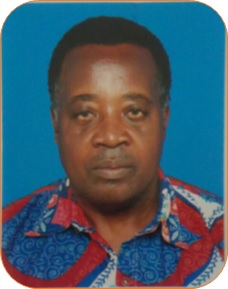 Prof. Tolly.S.A. Mbwette ia a holder of a PhD in Engineering from the University of London (Imperial College, UK) of 1989 as well as a Masters Degree of the University of Dar es Salaam (1984) and a B.Sc. Civil Eng. Degree (1981). He also holds a PG Diploma of the UNESCO WRE Institute of Delft, The Netherlands (1982). In Prof. Mbwette’s academic career at UDSM, he rose from a Tutorial Assistant in 1981 to a Full Professor in 1999. He was an Associate Dean for Research, Publications and Postgraduate Studies in the former Faculty of Engineering at UDSM (July 1991- June 1994) after which he became the Manager of the UDSM Transformation Programme in the Vice Chancellor’s office (July 1994-April 2002). Between 1st January, 2004 and 12th April, 2005, he was Deputy Vice Chancellor (Academic) of the Open University of Tanzania. From 13th April, 2005 to 12th April 2015, he was the Vice Chancellor, Open University of Tanzania . Between 2005 and 2007, he was the maiden Chairman of TCU. He is the Immediate Past Vice Chancellor of OUT and a former Member of the Governing Board of the Association of African Universities (AAU) from June 2013 to June 2017. Between 2011 and 2014 he was President of The African Council of Distance Education (ACDE). Between 2014 and April 2017 he was a Board member of the ACDE Board. He is the Immediate Past President of the Council of The Pan African University (PAU) for the period 2015 to 2017.
Prof. Tolly.S.A. Mbwette ia a holder of a PhD in Engineering from the University of London (Imperial College, UK) of 1989 as well as a Masters Degree of the University of Dar es Salaam (1984) and a B.Sc. Civil Eng. Degree (1981). He also holds a PG Diploma of the UNESCO WRE Institute of Delft, The Netherlands (1982). In Prof. Mbwette’s academic career at UDSM, he rose from a Tutorial Assistant in 1981 to a Full Professor in 1999. He was an Associate Dean for Research, Publications and Postgraduate Studies in the former Faculty of Engineering at UDSM (July 1991- June 1994) after which he became the Manager of the UDSM Transformation Programme in the Vice Chancellor’s office (July 1994-April 2002). Between 1st January, 2004 and 12th April, 2005, he was Deputy Vice Chancellor (Academic) of the Open University of Tanzania. From 13th April, 2005 to 12th April 2015, he was the Vice Chancellor, Open University of Tanzania . Between 2005 and 2007, he was the maiden Chairman of TCU. He is the Immediate Past Vice Chancellor of OUT and a former Member of the Governing Board of the Association of African Universities (AAU) from June 2013 to June 2017. Between 2011 and 2014 he was President of The African Council of Distance Education (ACDE). Between 2014 and April 2017 he was a Board member of the ACDE Board. He is the Immediate Past President of the Council of The Pan African University (PAU) for the period 2015 to 2017.
Between 2008 and December 2016, he was a holder of the UNESCO COL Professorial Chair in Open and Distance Learning (ODL) at OUT. In 2009, Prof. Mbwette was appointed as one of the Honorary Advisors to the Commonwealth of Learning (COL) until 2015. In March 2015, Prof. Mbwette was appointed to be one of the seven ICDE Chairs on Open Educational Resources (OER) up to 2019. In October 2016, Prof. Mbwette was voted to be Chair of the Board of the African Network for Internationalisation of Education (ANIE). Between October 2015 and August 2016, he was appointed by the President of URT as The Chairman of the Governing Board of the Tanzania Telecommunications Company Limited (TTCL). Between July 2017 and 30th June 2018 he was The Chair of The Board of DAWASCO and he is a member of The Executive Committee of The International Council for Distance Education (ICDE) for 2018 to 2019. Prof. Mbwette is a Member of The Board of Laweh College of Open and Distance Learning, Ghana. Prof. Mbwette is a Full Time Professor of Environmental Engineering at the College of Engineering & Technology, UDSM as well as a Professor of Environmental Science and Technology at OUT.
Dr. Assia Bensalah Alaoui
Ambassador at large for His Majesty the King Mohamed VI, Morocco

Prof. Emmanuel Nnadozie
Executive Secretary, ACBF
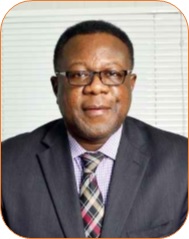
Dr Richard Hawkins
ICRA, Netherlands
 Richard has a long history with ICRA. He joined ICRA in 1990. From 2001 to 2012 he managed and supported ICRA's partnerships in Africa and Latin America to develop individual and organisational capacity for collective innovation in agriculture, as well as developing the ARD learning resources available on this web site. During 1998 to 2001, Richard was based in Mexico as ICRA representative to the Latin American Programme for Leadership Training in Rural Development, in Puebla, Mexico, in collaboration with the Postgraduate College of Mexico (CP), the Mexican Ministry of Agriculture, Livestock, Fish and Food (SAGARPA), and the International Network for Farming Systems Research Methodology (RIMISP). From 1990 to 1998, Richard was coordinator of the ICRA Anglophone Programme in Wageningen. From 1998 he was a Senior Associate from his base in England and in November 2012 Richard was appointed director of ICRA.
Richard has a long history with ICRA. He joined ICRA in 1990. From 2001 to 2012 he managed and supported ICRA's partnerships in Africa and Latin America to develop individual and organisational capacity for collective innovation in agriculture, as well as developing the ARD learning resources available on this web site. During 1998 to 2001, Richard was based in Mexico as ICRA representative to the Latin American Programme for Leadership Training in Rural Development, in Puebla, Mexico, in collaboration with the Postgraduate College of Mexico (CP), the Mexican Ministry of Agriculture, Livestock, Fish and Food (SAGARPA), and the International Network for Farming Systems Research Methodology (RIMISP). From 1990 to 1998, Richard was coordinator of the ICRA Anglophone Programme in Wageningen. From 1998 he was a Senior Associate from his base in England and in November 2012 Richard was appointed director of ICRA.
About:
Before joining ICRA, Richard worked with Winrock International as farming systems advisor in hilly areas in Indonesia (1988-1990) and Nepal (1986-1988). He worked with the British DA (now DFID) as crop physiologist at CATIE, Central America (1980-1985). His PhD fieldwork, on the effects of temperature on maize growth, development and yield, was carried out in Kenya (1976-1978).
Education: PhD and BSc in Crop Sciences from Nottingham University, UK
Expertise: Agricultural scientist with more than 25 years’ experience of rural innovation systems in Africa, Latin America and Asia.
Dr Agnes Kalibata
President AGRA

Dr. Kalibata leads the organization’s efforts with public and private partners to ensure a food secure and prosperous Africa through rapid, sustainable agricultural growth, improving the productivity and livelihoods of millions of smallholder farmers.
Prior to joining AGRA in September 2014, Dr. Kalibata was Rwanda’s Minister of Agriculture and Animal Resources (MINAGRI). In this role, she was widely considered to be one of the most successful Agriculture Ministers in sub-Saharan Africa. Dr. Kalibata has held several other leadership positions, including Permanent Secretary of Ministry of Agriculture and Deputy Vice Chancellor of University of Rwanda. She also worked for the International Institute of Tropical Agriculture in Uganda, and various other agricultural development organizations. She sits on various boards including the International Fertilizer Development Corporation (IFDC), Bioversity International, Africa Risk Capacity, the Malabo-Montpellier Panel, and is a member of the Global Agenda Council of the World Economic Forum. Dr. Kalibata has a distinguished track record as an agricultural scientist, policy maker and thought leader. She holds a doctorate in Entomology from the University of Massachusetts, Amherst.
Dr. Suchith Anand
University of Nottingham, UK

Isabelle Resiss
Clarivate Analytics

Isabelle Reiss has over 25 year of experience in the industry of Scientific information & publishing. She started her carrier in Springer (today SpringerNature) where she held different roles in France, Germany and Spain. In 2001, she moved to Latin America as regional manager for Springer and developed new business models to attend the need of scientific information of these fast growing economies in the era of internet. It was the time of helping regions grows their regional networks in order to democratize access to the worldwide scientific information.
In 2011, she started working for the well-known Institute of Scientific Information ISI ( today Clarivate) and specialized in Bibliometric studies.
A decade of successful access to scientific literature in Latin America resulted in a fast growing scientific production. In order to pursue their goals and take better informed decisions for the future, institutions and governments needed to answer questions like: who is producing what, who is collaborating with whom, what are our areas of excellence, where is the funding coming from, are there better opportunities of international collaboration and international funding?
The key answers lay in reliable analytic data and this is what Clarivate can provide.
Isabelle Reiss was born in France where she graduated in business administration. She holds a degree in maths and a master in international relations. She currently leaves in Brazil where she attends one of the largest consortia in the world called CAPES.
Dr. Yemi Akinbamijo
Executive Director, FARA

Dr. Yemi Akinbamijo, Executive Director of the Forum for Agricultural Research in Africa (FARA) is an eminent agriculture expert. A Nigerian national, he has spent the past three decades of his career in Africa and Europe working in the domains of international agriculture, food and nutrition security and rural development. His core competences are in the formulation and implementation of continent-wide initiatives and policies on Food Security and Agriculture.
Dr Akinbamijo’s other competences and experience are in research and development on agriculture and food security and specifically in the following areas: natural resource management including crop-livestock integrated systems, market-oriented production systems, regional value chains, land use management, sustainable agriculture and climate change adaptation. He has established an exceptional record in research-for development management and particularly in the areas of project development, monitoring and evaluation.
Dr. Akinbamijo is a strong analytical and strategic thinker. He is also an effective communicator. Owing to these attributes he is an active contributor to the global discourse on strategies for attaining a sustainable and inclusive agricultural transformation. He is also a consummate networker who is solidly plugged into an extensive community of stakeholders in the African agricultural and rural development landscape, including donors.
Dr. Akinbamijo’s career has been uniquely enriched by the various hands-on research, management and leadership positions he has held. He has served as a researcher, university faculty member, a diplomat (twice as a head of mission) and as a science, technology and innovation policy leader.
Prior to his appointment as the Executive Director of FARA, he served the African Union Commission in many capacities including as Chief Animal Resource Officer based at the African Union Inter-African Bureau for Animal Resources. In this capacity, he spearheaded the establishment of the multi-disciplinary think tank ALIG – African Livestock Interest Group and equally served as the Focal Person and Chair of the Organizing Committee of the International Conference on Highly Pathogenic Avian Flu (HPAI) in Mali in 2006.
Dr Akinbamijo was later appointed Head of Mission and Director of the African Union Inter-African Phyto-Sanitary Council (AU-IAPSC) based in Yaounde, Cameroon. Following his impressive stint in Cameroon, Dr Akinbamijo enjoyed an uncommon preferment at the African Union Commission (AUC) which culminated in his appointment as Head of the Agriculture and Food Security Division at the AUC Headquarters in Addis Ababa, Ethiopia in 2009. His core responsibility was the implementation of continent-wide initiatives of the Commission on Food security, Agriculture and their interactions with Climate Change. In this capacity, Dr Akinbamijo was instrumental to the elaboration and implementation of many continental policy frameworks sponsored by the African Union and especially the follow up of the three cardinal Summits of the African Union Heads of State and Governments hosted by Nigeria on Fish (2005), Fertiliser (2006) and Food (2006).
Dr Yemi Akinbamijo has an agriculture background with specialization in animal health and production. As a farmer-focused research scientist with strong interests in the interaction of agriculture and the environment and in poverty mitigation strategies, he helped lift hundreds of households out of poverty using novella inner-city/urban agriculture production strategies.
As a research scientist, Dr. Akinbamijo has made a mark in contributing to knowledge.
As his career advances into the maturation phase, and in a short space of 30 years, he has impacted the African agricultural sector significantly through science and policy interventions. He has served in several international panels including governance mechanisms across the continent and beyond.
In the context of his long-term career evolution, Dr. Akinbamijo’s position as FARA Executive Director offers him a platform to further utilize his strong professional acumen and attributes to attain his personal goal of significantly contributing to improving the quality livelihoods of Africans especially those engaged in agricultural value chains.
Dr Akinbamijo is widely published in various agricultural disciplines – Animal Production, Crop Production, Ecological and Organic Farming, Climate-Smart initiatives, etc. He is a former editor of the Bulletin of Animal Health and Production in Africa (Peer-review Journal) and lead author of the book ‘Crop-livestock Integration in West African cities’.
Prof. Stephen Onakuse
University College, Cork, Ireland/Agrinatura
 Prof. Stephen Onakuse is a lecturer/Researcher in the Department of Food Business & Development and an Assistant Director with the Centre for Sustainable Livelihoods, also at University College Cork since 2007. He received a BAgric degree from the University of Agriculture Abeokuta (Nigeria), an MSc in Environmental Biology from the University of Ibadan (Nigeria) and his PhD in Food Science and Technology from University College Cork (Ireland).
Prof. Stephen Onakuse is a lecturer/Researcher in the Department of Food Business & Development and an Assistant Director with the Centre for Sustainable Livelihoods, also at University College Cork since 2007. He received a BAgric degree from the University of Agriculture Abeokuta (Nigeria), an MSc in Environmental Biology from the University of Ibadan (Nigeria) and his PhD in Food Science and Technology from University College Cork (Ireland).
Stephen continued his study with a Postgraduate Certificate in Teaching and Learning in Higher Education, Postgraduate Diploma in Teaching and Learning in Higher Education and an MA in Teaching and Learning in Higher Education, all from University College Cork.
His research areas now include the use of indigenous knowledge within communities as focal point of small-scale production interventions; building local capacities and shared knowledge that help sustain food security and livelihoods outcomes; socio-economic and community analysis; understanding the role of institutions in economic development and the processes of institutional change; environment and its impact on food and nutrition security on development.
Stephen Onakuse has substantial research experience in both sub-Saharan Africa and Europe. He is a member of the European Association of Development Research and Training Institutes (EADI), the Agris Mundus and Agtrain Consortium, Development Studies Association, UK & Ireland (DSA) and a Board Member of (AGRINATURA) European institutions working together for Agricultural Research and Education for Development, a grouping of European universities and research organizations with a common interest in supporting agricultural development
Dr Lindiwe Majele Sibanda
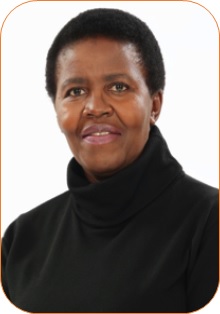
Lindiwe is a food systems scientist, policy advocate and trusted key Influencer of Food Systems. She completed her PhD (Agriculture) in 1992 and has over the past 25 years headed top organizations in private sector, public sector and research. She currently serves as the Co-Chair of Global Alliance for Climate Smart Agriculture (GACSA). Highlights of her work career include serving as:
1. Vice President - Country Support , Policy and Partnerships for the Alliance for a Green Revolution in Africa (AGRA) which is rolling out a 500 million US dollar agricultural transformation strategy in 11 African counties.
2. Head of Mission and CEO for FANRPAN, a pan-African policy think tank based in South Africa, with operations in 17 African Union member states.
3. Managing Director of Linds Agricultural Services and Linds, UK, a private consultancy firm that championed the functions analysis of ministries of agriculture in Zimbabwe, Uganda, Tanzania and Malawi leading to prioritization and alignment of state functions.
4. Research officer and lecturer in Animal sciences and Veterinary Sciences at the University of Zimbabwe.
Lindiwe is an action-oriented leader, whose main contribution to organizations has been formulating well thought-out strategic and implementation plans, developing structure and
building efficient systems and creating business rhythm.In Africa, Lindiwe is a recognized pre-eminent technical expert and diplomat who has held one on one engagements with Heads of State, and meets regularly with government Ministers as she drives Africa’s agriculture transformation agenda. She is a serving Member of the African Union Commission Leadership Council.
Prof. Brice Sinsin
University of Abomey Calavi, Benin
Professor Didier Pillot
Sup AGRO/Agrinatura, France

Dr David Phiri
FAO Sub-Regional Coordinator and representative to African Union Commission

Prof. Fanuel Tagwira
Permanent Secretary, Ministry of Higher Education and Scientific Research, Zimbabwe
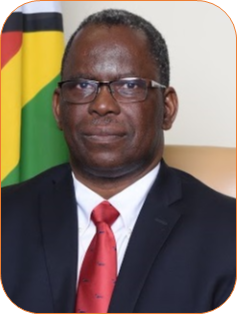 Fanuel Tagwira is currently the Permanent Secretary to the Ministry of Higher and Tertiary Education, Science and Technology Development in Zimbabwe. Previously he held a Professorial Chair in Agronomy, was Dean of the Faculty of Agriculture and Natural Resources and Vice Chancellor of Africa University. He served Africa University for a combined period of 26 yrs in various capacities. After retiring from the Vice Chancellor position, Prof Tagwira was a Sabbatical Professor at Purdue University in the United States. Prior to joining Africa University, Fanuel Tagwira was an Agricultural Scientist and Head of Soil Fertility and Plant Nutrition. in the then Ministry of Agriculture. He served the Ministry of Agriculture for 10 years.
Fanuel Tagwira is currently the Permanent Secretary to the Ministry of Higher and Tertiary Education, Science and Technology Development in Zimbabwe. Previously he held a Professorial Chair in Agronomy, was Dean of the Faculty of Agriculture and Natural Resources and Vice Chancellor of Africa University. He served Africa University for a combined period of 26 yrs in various capacities. After retiring from the Vice Chancellor position, Prof Tagwira was a Sabbatical Professor at Purdue University in the United States. Prior to joining Africa University, Fanuel Tagwira was an Agricultural Scientist and Head of Soil Fertility and Plant Nutrition. in the then Ministry of Agriculture. He served the Ministry of Agriculture for 10 years.
Prof Tagwira holds a B.Sc. in Biology and Chemistry from National University of Lesotho, M.Sc. Soil Chemistry from Reading University in England and PhD in Soil Chemistry and Fertility from University of Zimbabwe. He has published many scientific papers in local and international journals and also book chapters in soil fertility and environmental science. Prof Tagwira is a Fellow of the Zimbabwe Academy of Sciences, Fellow of the Leadership for Environment and Development and has served on the boards of a private companies and State Enterprises. He was Chair of the Center for Agricultural Research and Development in Southern Africa (CARDESSA) board and was also board member of Forum for Agricultural Research in Africa (FARA). Prof Fanuel Tagwira is one of the Rockefeller Foundations Grantees that were involved in the genesis of RUFORUM. In addition to being a policy maker, academic leader and researcher, Prof Tagwira cares deeply about: empowerment of the under privileged, the environment and education of Orphaned children from the community. He is a leader in his local church. He is married to Margaret and they have 3 daughters and one son.
Ms.Nancy Kacungira
BBC World Service

Hon. Dr. Mathew Opoku Prempeh
Minister of Education, Ghana
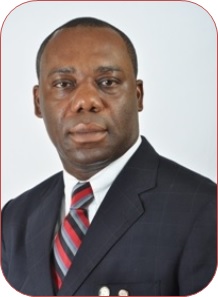 Dr. Matthew Opoku Prempeh is the Honourable Minister for Education of the Republic of Ghana, sworn in to this post on 27 January 2017 by His Excellency President Nana Akufo-Addo. He is also the Honourable Member of Parliament for Manhyia South Constituency in the Asanti Region since 2009. As a Member of Parliament, he has served on committees such as Health, Appointments, Special Budget and Environment, Science, Technology and Innovation. Dr. Prempeh is a qualified medical doctor and surgeon. He studied Human Biology and Medicine at the Kwame Nkrumah University of Science and Technology (BSc) and gained his Master’s Degree in Clinical Epidemiology from the Netherlands Institute of Health Sciences (MSc). He furthered his studies at the Kennedy School of Government, Harvard University, where he studied Leadership and Government.
Dr. Matthew Opoku Prempeh is the Honourable Minister for Education of the Republic of Ghana, sworn in to this post on 27 January 2017 by His Excellency President Nana Akufo-Addo. He is also the Honourable Member of Parliament for Manhyia South Constituency in the Asanti Region since 2009. As a Member of Parliament, he has served on committees such as Health, Appointments, Special Budget and Environment, Science, Technology and Innovation. Dr. Prempeh is a qualified medical doctor and surgeon. He studied Human Biology and Medicine at the Kwame Nkrumah University of Science and Technology (BSc) and gained his Master’s Degree in Clinical Epidemiology from the Netherlands Institute of Health Sciences (MSc). He furthered his studies at the Kennedy School of Government, Harvard University, where he studied Leadership and Government.
Dr. Prempeh has worked as a Medical Doctor in Ghana and the United Kingdom. He is a Surgeon and a member of the Royal College of Physicians and Surgeons of the United Kingdom. He was the CEO of Keyedmap Services Limited before being elected a Member of Parliament. Dr Prempeh was adjudged the best performing Minster in the first year (2017) of H.E. Akufo-Addo’s Administration. A recognition of his leadership in the implementation of the Free Senior High School policy, Basic Curriculum Reforms, Teacher Reforms, Technical Vocation Education Training Reforms and Tertiary Reforms amongst others!
Dr Eugenio Adolfo Alves da Silva
Secretary of State for Higher Education, Angola
Mr. Henry Rotich
Cabinet Secretary for Finance, Kenya
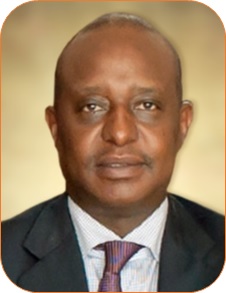
Dr. Aldo Stroebel,
Executive Director Strategic Partnerships, National Research Foundation (NRF), South Africa
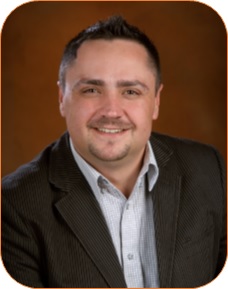 Dr Aldo Stroebel is Executive Director Strategic Partnerships at the National Research Foundation (NRF) of South Africa, and Visiting Fellow at the Institute for African Development at Cornell University, USA. He serves as South Africa’s National Contact Point for the ERC to H2020, and on the boards of the Water Research Commission (WRC) and the Agricultural Research Council (ARC). He is a former member of the Research and Innovation Strategy Group (RISG) of Universities South Africa (USAf), and past President of the Southern African Research and Innovation Management Association (SARIMA). He holds a Ministerial appointment to the National Education and Training Forum for Agriculture, Forestry and Fisheries (NETFAFF). In 2017, he was admitted as a Foreign Fellow of the Ugandan National Academy of Science, and is a founding member of the SA Young Academy of Science (SAYAS). Education credentials: University of Pretoria (BSc- and Hons-degrees); University of Ghent, Belgium (Masters in International Agricultural Development); University of the Free State and Cornell University, USA (PhD); Postdoctoral research at Wageningen University, The Netherlands. He has published widely in smallholder farming systems, and has been acknowledged as a leader in internationalisation of Higher Education, and research and innovation management.
Dr Aldo Stroebel is Executive Director Strategic Partnerships at the National Research Foundation (NRF) of South Africa, and Visiting Fellow at the Institute for African Development at Cornell University, USA. He serves as South Africa’s National Contact Point for the ERC to H2020, and on the boards of the Water Research Commission (WRC) and the Agricultural Research Council (ARC). He is a former member of the Research and Innovation Strategy Group (RISG) of Universities South Africa (USAf), and past President of the Southern African Research and Innovation Management Association (SARIMA). He holds a Ministerial appointment to the National Education and Training Forum for Agriculture, Forestry and Fisheries (NETFAFF). In 2017, he was admitted as a Foreign Fellow of the Ugandan National Academy of Science, and is a founding member of the SA Young Academy of Science (SAYAS). Education credentials: University of Pretoria (BSc- and Hons-degrees); University of Ghent, Belgium (Masters in International Agricultural Development); University of the Free State and Cornell University, USA (PhD); Postdoctoral research at Wageningen University, The Netherlands. He has published widely in smallholder farming systems, and has been acknowledged as a leader in internationalisation of Higher Education, and research and innovation management.
Professor Mark Erbaugh
Director, International Programs in Agriculture Office and Professor, Ohio State University/American Public and Land Universities
 Professor Erbaugh has 30+ years’ experience administering and implementing international development and capacity building programs for agricultural research, extension and natural resource management. Currently, he is Professor and Director of the International Programs in Agriculture Office, College of Food, Agricultural and Environmental Sciences at The Ohio State University (OSU). He has designed, administered and implemented overseas development contracts in 14 different countries funded by USAID, USDA and/or The World Bank, including human and institutional capacity development partnerships, degree training, and multi-disciplinary and institutional research and extension programs. Project related activities have focused on developing and delivering demand driven research and extension programming including participatory appraisals, farmer field schools, value chain and market-linkage assessments, gender analyses, developing university-agribusiness linkage programs, conducting agribusiness and extension training curricula assessments, and contributing to project evaluations and adoption studies. He has been PI or co-PI on three USAID Innovation Lab programs. He holds Ph.D. and M.S. degrees from OSU in Rural Sociology and a B.S. degree from the University of Michigan in Natural Resources
Professor Erbaugh has 30+ years’ experience administering and implementing international development and capacity building programs for agricultural research, extension and natural resource management. Currently, he is Professor and Director of the International Programs in Agriculture Office, College of Food, Agricultural and Environmental Sciences at The Ohio State University (OSU). He has designed, administered and implemented overseas development contracts in 14 different countries funded by USAID, USDA and/or The World Bank, including human and institutional capacity development partnerships, degree training, and multi-disciplinary and institutional research and extension programs. Project related activities have focused on developing and delivering demand driven research and extension programming including participatory appraisals, farmer field schools, value chain and market-linkage assessments, gender analyses, developing university-agribusiness linkage programs, conducting agribusiness and extension training curricula assessments, and contributing to project evaluations and adoption studies. He has been PI or co-PI on three USAID Innovation Lab programs. He holds Ph.D. and M.S. degrees from OSU in Rural Sociology and a B.S. degree from the University of Michigan in Natural Resources
Prof. Alice Pell
Cornell University
 Professor Alice Pell joined the Animal Science department in Cornell University’s College of Agriculture and Life Sciences in 1990 and directed Cornell’s International Institute for Food and Agricultural Development, a university-wide center for sustainable agricultural and rural development in Africa, Asia and Latin America from 2005-9. She served on panels supported by the Rockefeller Foundation, the African Academy of Science, the Gates Foundation, the U.S. National Academy of Science and the MacArthur Foundation. Pell was a STIAS fellow at Stellenbosch University in 2016 and an Extraordinary Professor at the University of the Western Cape. She currently is a fellow at the University of Pretoria. She was Cornell’s Vice Provost for International Relations (2008-2013). She is a cum laude graduate of Harvard University, has a Master's degree in international education from Harvard and M.S. and Ph.D. degrees from the University of Vermont in animal nutrition. She has engaged in research and graduate training programs in Botswana, Ghana, Ethiopia, Kenya, South Africa, India and Indonesia. Currently, she is a Trustee at Zamorano University in Honduras and is a member of the regional steering committee of RUFORUM’s project on Strengthening Agricultural Higher Education for Agri-Food Transformation in Africa (SHAEA). She was recently elected as a Fellow of the Uganda National Academy of Science.
Professor Alice Pell joined the Animal Science department in Cornell University’s College of Agriculture and Life Sciences in 1990 and directed Cornell’s International Institute for Food and Agricultural Development, a university-wide center for sustainable agricultural and rural development in Africa, Asia and Latin America from 2005-9. She served on panels supported by the Rockefeller Foundation, the African Academy of Science, the Gates Foundation, the U.S. National Academy of Science and the MacArthur Foundation. Pell was a STIAS fellow at Stellenbosch University in 2016 and an Extraordinary Professor at the University of the Western Cape. She currently is a fellow at the University of Pretoria. She was Cornell’s Vice Provost for International Relations (2008-2013). She is a cum laude graduate of Harvard University, has a Master's degree in international education from Harvard and M.S. and Ph.D. degrees from the University of Vermont in animal nutrition. She has engaged in research and graduate training programs in Botswana, Ghana, Ethiopia, Kenya, South Africa, India and Indonesia. Currently, she is a Trustee at Zamorano University in Honduras and is a member of the regional steering committee of RUFORUM’s project on Strengthening Agricultural Higher Education for Agri-Food Transformation in Africa (SHAEA). She was recently elected as a Fellow of the Uganda National Academy of Science.
Prof. Amr Adly
Deputy Minister of Higher Education and Scientific Research for Universities Affairs, Egypt
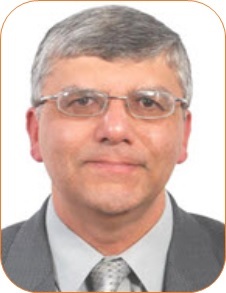 Prof. Amr A. Adly, received the B.S. and M.S. degrees in Elect. Power Eng. from Cairo University (CU) in 1984 and 1987, respectively, and the Ph.D. degree in Elect. Eng. from the University of Maryland (UMD), College Park, USA, in 1992. He also worked as a Senior Magnetics Scientist at LDJ Electronics, Michigan, USA, during 1993–1994. Since 1994, he has been a faculty member at the Faculty of Engineering, CU. He also worked in the USA as a Visiting Research Prof. at UMD during the summers of 1996–2000. He worked as a consultant to the UNESCO Cairo office and as an expert to the EU Commission to develop an 11M Euro Research Development and Innovation Program for the Egyptian Government. He also established and directed the R&D Division of the Egyptian Industrial Modernization Center in the period 2006-2007.
Prof. Amr A. Adly, received the B.S. and M.S. degrees in Elect. Power Eng. from Cairo University (CU) in 1984 and 1987, respectively, and the Ph.D. degree in Elect. Eng. from the University of Maryland (UMD), College Park, USA, in 1992. He also worked as a Senior Magnetics Scientist at LDJ Electronics, Michigan, USA, during 1993–1994. Since 1994, he has been a faculty member at the Faculty of Engineering, CU. He also worked in the USA as a Visiting Research Prof. at UMD during the summers of 1996–2000. He worked as a consultant to the UNESCO Cairo office and as an expert to the EU Commission to develop an 11M Euro Research Development and Innovation Program for the Egyptian Government. He also established and directed the R&D Division of the Egyptian Industrial Modernization Center in the period 2006-2007.
Prof. Adly has published about 130 reviewed papers and holds one U.S. patent, reviewed more than 300 papers, chaired many sessions in international IEEE Conferences, supervised more than 15 M.S. and Ph.D. students, engaged as a consultant to several Egyptian industrial entities and served as the Principal Investigator of several joint international research projects. He has been awarded the 1994 Egyptian State Encouragement Prize, the 2002 Shoman Foundation Arab Scientist Prize, the 2006 Egyptian State Excellence Prize, the 2016 University of Maryland ECE Dept. Distinguished Alumni Award and the 2016 Egyptian State Merit Prize in Engineering Sciences. He previously served IEEE Magnetic Society Technical Committee, has been promoted to the IEEE Fellow status in 2011 and is currently serving on the Editorial Board of Elsevier JAR and the IEEE Transactions on Magnetics.
In the period 2010-2014 Prof. Adly served as Cairo University’s Faculty of Engineering Vice Dean and served in the period 2014-2015 as the Executive Director of Egypt’s Science and Technology Development Fund (STDF) which is the main governmental R&D Funding entity in Egypt. Prof. Adly served as Cairo University Vice President for Graduate Studies and Research during the period January 3rd 2016 till June 13th 2018. Since June 14th 2018 Prof. Adly has been appointed as the Deputy Minister of Higher Education and Scientific Research for Universities Affairs.
Dr. Yun Seon Kim
Head professor of Graduate school of Global Development and Entrepreneurship at Handong Global University, Pohang, South Korea

 Dr. Yun Seon Kim is the head professor of Graduate school of Global Development and Entrepreneurship at Handong Global University, Pohang, South Korea. Also, Dr. Kim is program director of KOICA scholarship program for Techno Entrepreneurship competency based on EE&ICT Convergence. Prior to this, Dr. Kim served as the CEO of an ICT security company and also Co-founded and acted as Vice President of Robust System Inc. at USA. Dr. Kim’s main interest in ICT lies in the convergence of knowledge management, intelligent knowledge-based systems, VR/AR/MR, data analysis, optimization, big data, global development, and entrepreneurship. Specially, Dr. Kim has interests for agriculture with ICT in 4th industrial revolution era, the role and direction of the developing countries. Dr. Kim has worked on various global development and capacity development for developing countries’ intelius on entrepreneurship and ICT convergence in Asia and Africa. Specially, Also, Dr. Kim has worked on a variety of high-level assignments, including projects for the United States of America Department of Defense, United States of America Department of Education, Ford Motor Company, the Ministry of Knowledge Economy of Korea and the Korea Meteorological Administration. Dr. Kim obtained his PhD in Industrial Engineering at Wayne State University in Michigan, United States of America and acquired his Master’s Degree in Information Science at University of Pittsburgh in Pittsburgh, United States of America and BAs in Computer Science and Management at Handong Global University in Pohang, Korea.
Dr. Yun Seon Kim is the head professor of Graduate school of Global Development and Entrepreneurship at Handong Global University, Pohang, South Korea. Also, Dr. Kim is program director of KOICA scholarship program for Techno Entrepreneurship competency based on EE&ICT Convergence. Prior to this, Dr. Kim served as the CEO of an ICT security company and also Co-founded and acted as Vice President of Robust System Inc. at USA. Dr. Kim’s main interest in ICT lies in the convergence of knowledge management, intelligent knowledge-based systems, VR/AR/MR, data analysis, optimization, big data, global development, and entrepreneurship. Specially, Dr. Kim has interests for agriculture with ICT in 4th industrial revolution era, the role and direction of the developing countries. Dr. Kim has worked on various global development and capacity development for developing countries’ intelius on entrepreneurship and ICT convergence in Asia and Africa. Specially, Also, Dr. Kim has worked on a variety of high-level assignments, including projects for the United States of America Department of Defense, United States of America Department of Education, Ford Motor Company, the Ministry of Knowledge Economy of Korea and the Korea Meteorological Administration. Dr. Kim obtained his PhD in Industrial Engineering at Wayne State University in Michigan, United States of America and acquired his Master’s Degree in Information Science at University of Pittsburgh in Pittsburgh, United States of America and BAs in Computer Science and Management at Handong Global University in Pohang, Korea.
Dr. Wanjiru Kamau-Rutenberg
Director, African Women in Agricultural Research and Development (AWARD)
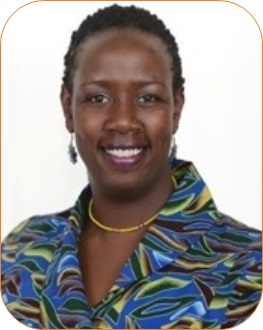
Dr. Wanjiru Kamau-Rutenberg is the Director of African Women in Agricultural Research and Development (AWARD). AWARD is working towards inclusive, agriculture-driven prosperity for the African continent by strengthening the production and dissemination of agricultural research and innovation that is more gender responsive.
Born in Kenya, Dr. Kamau-Rutenberg holds a PhD and a Master’s degree in Political Science from the University of Minnesota, and a Bachelor of Arts degree in Politics as well as a Doctorate (Honoris Causa) from Whitman College in Washington, U.S.A.Dr. Kamau-Rutenberg has received widespread recognition for her work including being honored as a White House Champion of Change by the Obama administration, named one of the 100 Most Influential Africans by New African magazine, recognized as a Ford Foundation Champion of Democracy, and named one of Kenya’s Top 40 Women Under Age 40, and an associate of the Archbishop Desmond Tutu Leadership Fellowship among others.
Prof. BAKAYOKO-LY Ramata
Ministre de la Femme, de la Famille et de l’Enfant de la Côte d’Ivoire.
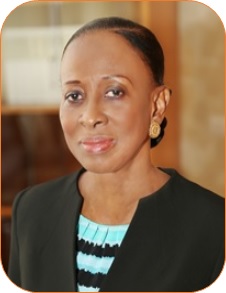 Après l’obtention, en juin 1974, du baccalauréat, série mathématiques et sciences physiques, option C, le Professeur BAKAYOKO-LY Ramata embrasse une carrière hospitalo-universitaire en Odonto-Stomatologie.
Après l’obtention, en juin 1974, du baccalauréat, série mathématiques et sciences physiques, option C, le Professeur BAKAYOKO-LY Ramata embrasse une carrière hospitalo-universitaire en Odonto-Stomatologie.
Docteur en Chirurgie Dentaire en 1980, Agrégé du Conseil Africain et Malgache pour l’Enseignement Supérieur (CAMES), section pédodontie-prévention, en 1990, elle obtient sa titularisation CAMES en Odonto-Stomatologie en 1994. Elle est auteur de plus d’une centaine de travaux de recherche et a encadré plusieurs thèses. Ses travaux ont porté essentiellement sur :
- l’épidémiologie des affections bucco-dentaires ;
- l’établissement de la cartographie du fluor en Côte d’Ivoire ;
-la valorisation des plantes médicinales en odonto-stomatologie ;
L’établissement des normes et standards de référence chez l’enfant africain.
Sa carrière dans l’administration universitaire commence en 1985 où elle crée le département de Pédodontie-Prévention pour prendre en charge la santé bucco-dentaire des enfants et la prévention des maladies bucco-dentaires. Elle occupe, de 1991 à 1995, le poste de Vice-Doyen de la Faculté d’Odonto-Stomatologie. En 1998, avec la collaboration de feu le professeur Touré Seydou Hamed, alors Doyen de l’UFR d’Odonto-Stomatologie, elle crée le département de Santé Publique et le Laboratoire de Santé Publique, Plantes Médicinales et Cariologie.À la faveur de la réforme de l’Enseignement Supérieur en 1996, elle est nommée Vice-Présidente de l’Université de Cocody, en charge de la coordination des Enseignements, de Recherche, de la Vie Universitaire et de l’insertion Professionnelle. En cette qualité, elle a contribué à la mise en œuvre de la réforme LMD au sein de l’institution universitaire. Elle est Présidente de l’Université de Cocody devenue Université Félix Houphouët-Boigny (UFHB) en 2012, puis Ministre en charge de l’Enseignement Supérieur et de la Recherche Scientifique en 2016.Le Professeur BAKAYOKO-LY Ramata est à l’origine de la création du Pôle Scientifique et d’Innovation de l’Université Félix Houphouët-Boigny qui a pour objectif de mettre en relation l’université avec le monde industriel. Le Pôle abrite entre autres : des écoles doctorales, dont l’école doctorale sur les changements climatiques et l’agriculture durable qui est un centre d’Excellence de la Banque Mondiale, une unité pilote de recherche et de production de bio-pesticides pour l’agriculture durable, une unité pilote de recherche, de développement et de production de phytomédicaments, un Centre Régional d’Innovation et d’Incubation.
Madame le Professeur BAKAYOKO-LY Ramata a obtenu plusieurs prix et reconnaissances et distinctions au niveau national et international. Elle est membre associé de l’Académie Nationale de Chirurgie Dentaire de France et membre correspondant de l’Académie des Sciences d’Outre-Mer. Elle est vice-présidente du Conseil d’administration du Centre Régional d’Évaluation en Éducation, en Environnement et en Santé et d’Accréditation en Afrique (CRESAC) et membre de plusieurs Institutions académiques internationales dont le Centre Suisse de Recherches Scientifiques.
Pendant six ans (2006-2012), elle fut membre du Conseil scientifique de l’Agence Universitaire de la Francophonie (AUF). En cette qualité, elle a présidé la Commission Régionale d’Experts du Bureau Afrique de l’Ouest de l’AUF.
Elle est Présidente de la Commission scientifique de l’Institut international de l’eau et de l’environnement (2iE) et également Présidente depuis 2004, du Jury de la section Odonto-Stomatologie du Concours d’Agrégation de Médecine, Pharmacie, Odonto-Stomatologie, Médecine Vétérinaire et Productions Animales du CAMES. Depuis le 8 juillet 2018, le Professeur BAKAYOKO-LY Ramata est Ministre de la Femme, de la Famille et de l’Enfant.
Prof. Christine Dranzoa,
Vice Chancellor, Muni University, Uganda
 Christine Dranzoa is a Professor of Wildlife Management and the Founder Vice Chancellor of Muni University, which is the sixth public university of Uganda, West Nile region Arua town. Professor Dranzoa led the taskforce that was charged by Uganda Government to establish Muni University from 2010-2013 from a Green Field. A job she accomplished with her team members efficiently and effectively. She previously served as the first female Deputy Director, School of Graduate Studies in Makerere University from 2005-2010. During her tenure several policy reforms and administrative reforms in graduate programmes took effect. More PhD and Masters Students graduated. She was the team leader that founded the Department of Wildlife & Animal Resources Management (WARM), Faculty of Veterinary Medicine. She innovated very many international programmes and projects in WARM department. She served as president on a couple of international boards:- Pan-African Ornithological Congress, as President of the Pan African NGO, Forum for African Women Educationalist (FAWE) that is advocating and promoting the education of the Girl-Child in 33 African Countries from 2013 to 2017. She continues to serve FAWE as a member, and model of Excellency. She is an accomplished academician, researcher, recognized by peers and highly published member of Uganda National Academy of Sciences. She represents the Uganda Vice Chancellors Forum on the Higher Education Students Financing Board, Uganda and an Executive Committee member of other boards. . She loves mentoring the youth and serving the underprivileged women and girls and population of Africa.
Christine Dranzoa is a Professor of Wildlife Management and the Founder Vice Chancellor of Muni University, which is the sixth public university of Uganda, West Nile region Arua town. Professor Dranzoa led the taskforce that was charged by Uganda Government to establish Muni University from 2010-2013 from a Green Field. A job she accomplished with her team members efficiently and effectively. She previously served as the first female Deputy Director, School of Graduate Studies in Makerere University from 2005-2010. During her tenure several policy reforms and administrative reforms in graduate programmes took effect. More PhD and Masters Students graduated. She was the team leader that founded the Department of Wildlife & Animal Resources Management (WARM), Faculty of Veterinary Medicine. She innovated very many international programmes and projects in WARM department. She served as president on a couple of international boards:- Pan-African Ornithological Congress, as President of the Pan African NGO, Forum for African Women Educationalist (FAWE) that is advocating and promoting the education of the Girl-Child in 33 African Countries from 2013 to 2017. She continues to serve FAWE as a member, and model of Excellency. She is an accomplished academician, researcher, recognized by peers and highly published member of Uganda National Academy of Sciences. She represents the Uganda Vice Chancellors Forum on the Higher Education Students Financing Board, Uganda and an Executive Committee member of other boards. . She loves mentoring the youth and serving the underprivileged women and girls and population of Africa.
Dr. Chuanhong ZHANG
China Institute of South-South Cooperation in Agriculture (CISSCA)
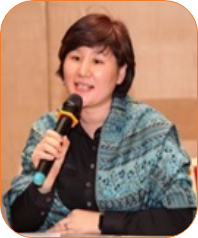 Dr. Chuanhong ZHANG is a Senior Researcher at China Institute of South-South Cooperation in Agriculture (CISSCA) and associate professor of development studies at Department of International Development, College of Humanities and Development Studies, China Agricultural University. Dr. Zhang also serves as the Secretary of China International Development Research Network (CIDRN). Dr. Zhang served as an academic visitor in the China Centre at University of Oxford from January 2011 to January 2012. She was a visiting scholar at the Department of Political Science at the University of California, Davis, from September 2017 to August 2018. She has been doing research on both China’s rural transformation and China international development cooperation, especially concerning China’s agricultural engagement in Southeast Africa, including Mozambique and Tanzania.
Dr. Chuanhong ZHANG is a Senior Researcher at China Institute of South-South Cooperation in Agriculture (CISSCA) and associate professor of development studies at Department of International Development, College of Humanities and Development Studies, China Agricultural University. Dr. Zhang also serves as the Secretary of China International Development Research Network (CIDRN). Dr. Zhang served as an academic visitor in the China Centre at University of Oxford from January 2011 to January 2012. She was a visiting scholar at the Department of Political Science at the University of California, Davis, from September 2017 to August 2018. She has been doing research on both China’s rural transformation and China international development cooperation, especially concerning China’s agricultural engagement in Southeast Africa, including Mozambique and Tanzania.
Dr. Florent Okry
Executive Secretary and Programme Leader ‘Learning and Advocacy’ at Access Agriculture
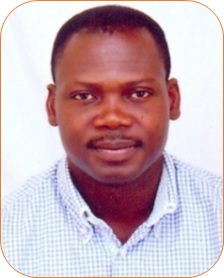 Dr. Florent Okry is an agricultural social scientist by training. Dr. Florent Okry serves as Executive Secretary and Programme Leader ‘Learning and Advocacy’ at Access Agriculture, an International NGO promoting the use of quality farmer to farmer training videos in support to South-South knowledge exchange. Florent has worked for more than 15 years with national and international organisations in agricultural R&D throughout Africa during which he steered rural learning interventions, evaluated interventions dealing with farmer-to-farmer training videos and supported multi-stakeholder projects. He has authored about 20 publications dealing directly with video mediated rural learning. Florent Okry is Associate Professor of Extension at the National University of Agriculture of Benin Republic. Florent has a keen interest in the creative uses of digital technologies to support knowledge sharing and development dynamics.
Dr. Florent Okry is an agricultural social scientist by training. Dr. Florent Okry serves as Executive Secretary and Programme Leader ‘Learning and Advocacy’ at Access Agriculture, an International NGO promoting the use of quality farmer to farmer training videos in support to South-South knowledge exchange. Florent has worked for more than 15 years with national and international organisations in agricultural R&D throughout Africa during which he steered rural learning interventions, evaluated interventions dealing with farmer-to-farmer training videos and supported multi-stakeholder projects. He has authored about 20 publications dealing directly with video mediated rural learning. Florent Okry is Associate Professor of Extension at the National University of Agriculture of Benin Republic. Florent has a keen interest in the creative uses of digital technologies to support knowledge sharing and development dynamics.
Dr. Francis Otto, Manager – Knowledge Hub,
RUFORUM Secretariat
 Dr. Francis Otto, currently working as Manager – Knowledge Hub at the RUFORUM Secretariat, is a Computer Scientist and Information and Communication Technologies for Development (ICT4D) enthusiast. In 2013, Dr. Otto graduated with a Graduate Diploma in Leadership in ICT and the Knowledge Society development from Dublin City University in Ireland. In 2016, he completed his PhD study in Computer Science from the University of Reading in the United Kingdom. He was awarded a Commonwealth Scholarship for his PhD research, which focused on the use of collaborative technologies to improve higher education.
Dr. Francis Otto, currently working as Manager – Knowledge Hub at the RUFORUM Secretariat, is a Computer Scientist and Information and Communication Technologies for Development (ICT4D) enthusiast. In 2013, Dr. Otto graduated with a Graduate Diploma in Leadership in ICT and the Knowledge Society development from Dublin City University in Ireland. In 2016, he completed his PhD study in Computer Science from the University of Reading in the United Kingdom. He was awarded a Commonwealth Scholarship for his PhD research, which focused on the use of collaborative technologies to improve higher education.
Hon. Justice Yien Oral Lam Tut
Minister of Higher Education, Science, and Technology of South Sudan
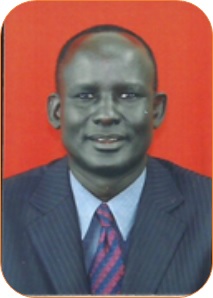 Hon. Justice Yien Oral Lam Tut has been the Minister of Higher Education, Science, and Technology of South Sudan since 2016. He holds Bachelor of Laws from Cairo University in Khartoum, Sudan (1994); and Master of Laws in Litigation and Dispute Resolution from University of Queensland, Australia (2006). His professional training includes obtaining Diploma of Legal Practice, University of Queensland, Australia; Diploma of Justice, South Bank Institute of Technology, Australia; Diploma in Police Science and Legal Studies, Sudan Police Academy; and Diploma in Security and Strategic Studies, Brisbane Security Institute, Australia. Previous to his political career, Hon. Justice Yien Tut served as legal officer in Sudan Police Service (1988 -1998); instructor at Sudan Police Academy (1994-1998); legal office/litigations at Department of Justice and Attorney General, Brisbane, Australia (2002-2006); Rule of Law Officer, United Nations Mission in South Sudan (2006-2008); and as independent human rights, criminal defense, and dispute resolution lawyer, Juba, South Sudan (2009– 2016).
Hon. Justice Yien Oral Lam Tut has been the Minister of Higher Education, Science, and Technology of South Sudan since 2016. He holds Bachelor of Laws from Cairo University in Khartoum, Sudan (1994); and Master of Laws in Litigation and Dispute Resolution from University of Queensland, Australia (2006). His professional training includes obtaining Diploma of Legal Practice, University of Queensland, Australia; Diploma of Justice, South Bank Institute of Technology, Australia; Diploma in Police Science and Legal Studies, Sudan Police Academy; and Diploma in Security and Strategic Studies, Brisbane Security Institute, Australia. Previous to his political career, Hon. Justice Yien Tut served as legal officer in Sudan Police Service (1988 -1998); instructor at Sudan Police Academy (1994-1998); legal office/litigations at Department of Justice and Attorney General, Brisbane, Australia (2002-2006); Rule of Law Officer, United Nations Mission in South Sudan (2006-2008); and as independent human rights, criminal defense, and dispute resolution lawyer, Juba, South Sudan (2009– 2016).
Dr. Mario Piedra
Agricultural Economics professor and researcher at CATIE
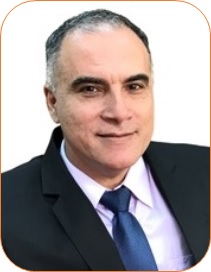 Dr. Mario Piedra, an award-winning Agricultural Economics professor and researcher at CATIE (www.catie.ac.cr), where he currently serves as Deputy Director General, has been researching this question throughout his career. Mario has a passion for mentoring students, tirelessly securing funds for higher education, promoting rural entrepreneurship and development through higher education, and building capacity so that individuals can become agents of change in their communities and work.
Dr. Mario Piedra, an award-winning Agricultural Economics professor and researcher at CATIE (www.catie.ac.cr), where he currently serves as Deputy Director General, has been researching this question throughout his career. Mario has a passion for mentoring students, tirelessly securing funds for higher education, promoting rural entrepreneurship and development through higher education, and building capacity so that individuals can become agents of change in their communities and work.
In particular, Mario has been concerned with establishing lasting alliances and initiatives among higher education institutions, the private sector, and the rest of society to help countries advance their environment and development goals.
• As Director of the Permanent Education Program (PEP) at EARTH University, Mario led a unique combination of entrepreneurial, technical cooperation and outreach activities between EARTH and other sectors of society, under a profitable and financially viable structure.
• During his tenure at EARTH University, he secured national and international funding of close to US$ 15 million to address critical areas of sustainable rural development in the humid tropics of Central America and strengthen the university’s development goals.
• As Deputy Director General in CATIE, Mario lends advisory and support in leading the Division of Education and Graduate School, coordinating with governments and donors, working closely with the Office of Strategic Alliances and Fundraising.
• His previous experience as Dean of the CATIE Graduate School has equipped him with a thorough knowledge of agronomical higher education’s challenges and opportunities in a developing tropical region setting.
• Mario represents CATIE and has represented EARTH at international and regional forums and has sat on the advisory committee of higher education initiatives such as LACEEP, as well on the Board of Directors of entrepreneurial endeavors, such as the Costa Rica-Grameen Association and IDB + Root Capital + EARTH University projects, accumulating hands-on experience steering result-oriented, collaborative undertakings.
On this occasion, he will address the issue of Unravelling University, Community and Private Sector Engagement for Agricultural Transformation in Africa, a continent where he has shared his expertise with local higher education institutions through RUFORUM.
When he is not busy networking and tackling education, research and entrepreneurship issues all over the world, Mario can be found in the green hills of his native San Carlos, tending to his beloved pets and plants.
Prof. Waceke Wanjohi
Plant Pathologist with specialization in plant nematology,Kenyatta University
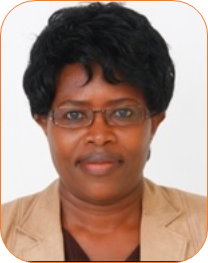
Prof. Waceke Wanjohi is a Plant Pathologist with specialization in plant nematology and has taught at Kenyatta University for the last 29 years. She is the immediate former Dean of the School of Agriculture and Enterprise Development having previously served as the Founding Director of the Regional Center for Capacity Development and Chairperson of the Department of Agricultural Science and Technology in the same University. She has also served as the Chairperson of the North Coast Beach Hotel Board; a member of Governing councils of three universities; Kenyatta University, International Leadership University and the African International University. Prof. Wanjohi is a scholar of international repute having been elected as a Fellow of the Royal Society of Biology, UK in 2010 and a Fellow of the Kenya National Academy of Sciences in 2015. She was also recognized as an outstanding research scientist by the Falling Walls Foundation in Germany in 2010. She is a Fulbright Senior Research Fellow and an African Women in Agricultural Research and Development (AWARD) Fellow. Further, she was nominated for the L’oreal UNESCO - life sciences Award and nominated to be included in the Kenya’s 50th Independence Anniversary Commemorative Plaque of the roll of Honour (Research and Excellence category). She was a visiting Professor at the Humboldt University, Germany 2016 and the Center for Biology and Population Genetics, France in 2007
In contributing to the acceleration of Africa’s Development, Prof Wanjohi has co- founded the Nematology Initiative for East and Southern Africa, Kenya Society of Microbiology (KSM) and the Journal of Tropical Microbiology and Biotechnology. She has described a new nematode species and the first to report the presence of the cyst nematode on potatoes in Kenya. Jointly with others; she has established and fully equipped six (6) Plant Nematology Laboratories in the East and Southern region; Co-authored two Training manuals; Plant Nematology and Diagnosis and Management of Biotic stresses in Plants.
Prof. Wanjohi has served as an External Examiner for various Universities, an Editorial Board member, an invited author, a discussant, Guest Speaker and a Key note speaker in many professional meetings. She served as a mentor for the emerging Women Agricultural scientists under the AWARD program from 2010 to 2013. She has served as an Independent External Expert in the Negotiation and Evaluation of the Annual Performance Contracts for Ministries, State Corporations and Tertiary Institutions on behalf of the Government of Kenya’s (GoK) since 2009.Prof. Wanjohi has published over 60 scientific papers, presented papers in over 40 conferences and workshops, attracted research grants from Federal Ministry of Education and Research, Germany, Gatsby Charitable Foundation UK, Rockefeller Foundation, World Federation of Science, Koppert Biological Systems, Osho Chemical Industries among others. She has supervised 10 Postgraduate students and currently supervising 15 students. She has organized several scientific conferences and training workshops. Prof Wanjohi is a cofounder of the Neema Hospital, a level 4 hospital which is in its seventh year of operation.
Nelson Torto
Executive Director of The African Academy of Sciences (The AAS)
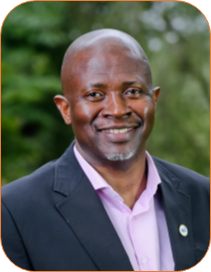 Nelson Torto is the Executive Director of The African Academy of Sciences (The AAS). The AAS is a non-aligned, non-political, not-for-profit pan African organisation whose vision is to see transformed lives on the African continent through science.
Nelson Torto is the Executive Director of The African Academy of Sciences (The AAS). The AAS is a non-aligned, non-political, not-for-profit pan African organisation whose vision is to see transformed lives on the African continent through science.
Under his leadership, the goals of The AAS are to promote partnerships, mobilise the african scientific community, lead science advocacy efforts and ensure research findings are incorporated into policymaking so that science remains at the forefront of the African agenda and is adequately supported to transform people’s lives. At the core of his agenda is empathy; the stakeholder has to be part of finding the solution to their challenges.
Prior to joining The AAS, Torto was the founding Chief Executive Officer of the Botswana Institute for Technology Research and Innovation. He was also the the Founding Director of the Centre for Scientific Research Indigenous Knowledge and Innovation (CesriKi), credited with the establishment of the indigenous knowledge policy for Botswana. He has had an illustrious academic and research career and has graduated 19 PhD students during his tenure at the University of Botswana and Rhodes University.
He will be speaking as a panellist during the Parallel Plenary Session 11 on “Building Foresight Capacity to Guide Africa’s Development
Dr. Juma Mukhwana
Director General of The Kenya National Qualifications Authority (KNQA)
 Dr. Juma Mukhwana was appointed as the first Director General of The Kenya National Qualifications Authority (KNQA) on 6th August 2018. Dr Mukhwana has worked in the Agriculture and higher education sectors in the NGO, University and Educational sectors both locally and internationally. He holds a bachelor’s degree in Veterinary Medicine (1993) and M.Sc. in Pharmacology and Toxicology (1995) both from the University of Nairobi, Kenya, and a PhD in Soil Science from the University of Wyoming in the USA. He has worked in top management either as a CEO, and/or Deputy CEO in the public and private sectors for over 20 years. Between 2011 and 2013, he worked as a Senior Lecturer and Chairman of the Department of Land and Water Management (and Acting Dean, School of Agriculture), University of Embu. From 2013 to 2017 he served as the Deputy Commission Secretary/Deputy CEO at the Commission for University Education in Kenya; in charge of Planning, Research and Development. Dr Mukhwana is an accomplished Leader and Researcher in Higher education in Africa.
Dr. Juma Mukhwana was appointed as the first Director General of The Kenya National Qualifications Authority (KNQA) on 6th August 2018. Dr Mukhwana has worked in the Agriculture and higher education sectors in the NGO, University and Educational sectors both locally and internationally. He holds a bachelor’s degree in Veterinary Medicine (1993) and M.Sc. in Pharmacology and Toxicology (1995) both from the University of Nairobi, Kenya, and a PhD in Soil Science from the University of Wyoming in the USA. He has worked in top management either as a CEO, and/or Deputy CEO in the public and private sectors for over 20 years. Between 2011 and 2013, he worked as a Senior Lecturer and Chairman of the Department of Land and Water Management (and Acting Dean, School of Agriculture), University of Embu. From 2013 to 2017 he served as the Deputy Commission Secretary/Deputy CEO at the Commission for University Education in Kenya; in charge of Planning, Research and Development. Dr Mukhwana is an accomplished Leader and Researcher in Higher education in Africa.
Prof. Patience m. Mshenga
Associate Professor of Agribusiness Management
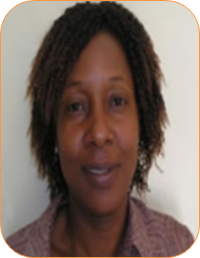 Patience is an Associate Professor of Agribusiness Management and is the current chairperson, Department of Agricultural Economics and Agribusiness Management, Egerton University, Kenya. With a key interest in agribusiness development, she has supervised many graduate students.
Patience is an Associate Professor of Agribusiness Management and is the current chairperson, Department of Agricultural Economics and Agribusiness Management, Egerton University, Kenya. With a key interest in agribusiness development, she has supervised many graduate students.
She has extensive skills and experience in models for strengthening micro, small and medium scale enterprises including entrepreneurial development as well as farm and non-farm linkages. She has extensive knowledge and skills in project management having been the project manager of diverse projects in Agribusiness and Value chain development key amongst them is the EDULINK 11 project ‘Strengthening University capacity to enhance competitiveness of Agribusiness in Eastern and West Africa’ funded by European Commission. She is currently the assistant coordinator of ‘Transforming African Agricultural Universities to meaningfully contribute to Africa’s growth and Development (TAGDEV) project funded by Mastercard Foundation through RUFORUM at Egerton University. She has been involved in youth agribusiness competitions and was one of the judges of AgriBiz4Africa Competition organized by Enactus Kenya, Syngenta and AGRA. With keen interest in youth agribusiness incubation, she is the founder of the Agrienterprise Fund Scheme in Egerton University, Gulu, Mekele and University of Portharcourt where students write business proposals which are assessed for viability and later are given seed funding to implement their business ideas. She can be contacted at pmshenga@egerton.ac.ke
Mphumuzi Sukati
Senior Nutrition and Food Systems officer - FAORAF
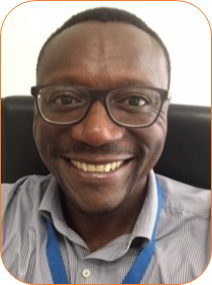 Mr Mphumuzi Sukati is an Economist and a Veterinary Doctor. He is the Senior Nutrition and Food Systems Officer at FAORAF. Before joining FAORAF he was the Senior Policy Officer: Economics, Trade and Marketing at the African Union Inter-African Bureau for Animal Resources (AU-IBAR), based in Nairobi, Kenya. Before joining AU-IBAR he was an Agricultural Economist at the Common Market for Eastern and Southern Africa (COMESA), based in Zambia, Lusaka. He has practiced as a veterinary doctor in Swaziland for several years and has done a lot of consultancy work for FAO and UNDP Swaziland as an Economist National Consultant with focus on agriculture and food systems. He was key in drafting the Swaziland National Agricultural Investment Plan. He has drafted various agricultural development strategies including that for Lesotho and Zimbabwe. He has publications in various peer reviewed journals.
Mr Mphumuzi Sukati is an Economist and a Veterinary Doctor. He is the Senior Nutrition and Food Systems Officer at FAORAF. Before joining FAORAF he was the Senior Policy Officer: Economics, Trade and Marketing at the African Union Inter-African Bureau for Animal Resources (AU-IBAR), based in Nairobi, Kenya. Before joining AU-IBAR he was an Agricultural Economist at the Common Market for Eastern and Southern Africa (COMESA), based in Zambia, Lusaka. He has practiced as a veterinary doctor in Swaziland for several years and has done a lot of consultancy work for FAO and UNDP Swaziland as an Economist National Consultant with focus on agriculture and food systems. He was key in drafting the Swaziland National Agricultural Investment Plan. He has drafted various agricultural development strategies including that for Lesotho and Zimbabwe. He has publications in various peer reviewed journals.
Dr Molapo Qhobela
Chief Executive Officer of the National Research Foundation
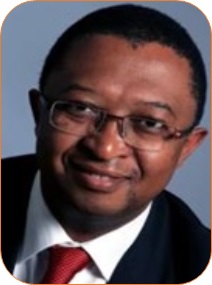 Dr Molapo Qhobela is Chief Executive Officer of the National Research Foundation. He is a seasoned executive leader with extensive policy and administration experience that has seen him head up the development of a significant number of policy and strategy documents, which have shaped the nature and operations of South African universities as well as the education system in general. He has exceptional knowledge of the African Higher Education System, and has established well-seeded international relationships and networks with funders and government entities over the years.
Dr Molapo Qhobela is Chief Executive Officer of the National Research Foundation. He is a seasoned executive leader with extensive policy and administration experience that has seen him head up the development of a significant number of policy and strategy documents, which have shaped the nature and operations of South African universities as well as the education system in general. He has exceptional knowledge of the African Higher Education System, and has established well-seeded international relationships and networks with funders and government entities over the years.
His prior appointments include: Vice-Principal: Institutional Development at the University of South Africa; Deputy Director-General at the Department of Science and Technology; Deputy Director-General and Acting Director-General of the Department of Higher Education and Training.
Dr Qhobela obtained his PhD (Plant Pathology) from Kansas State University and a BSc (Botany and Zoology) from the University of Zimbabwe.
Prof. Goolam Mohamedbhai
Vice-President of the Mauritius Academy of Science and Technology (MAST)
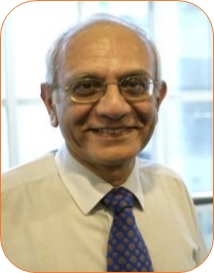 Goolam Mohamedbhai did his undergraduate and postgraduate studies in Civil Engineering at the University of Manchester, UK, and later his postdoctoral research at the University of California, Berkeley. He joined the University of Mauritius in 1972 and served as its Vice-Chancellor from 1995 to 2005. He was Secretary-General of the Association of African Universities, President of the International Association of Universities, and a member and Vice-Chair of the governing Council of the United Nations University. He is the recipient of several honorary doctorates and awards.
Goolam Mohamedbhai did his undergraduate and postgraduate studies in Civil Engineering at the University of Manchester, UK, and later his postdoctoral research at the University of California, Berkeley. He joined the University of Mauritius in 1972 and served as its Vice-Chancellor from 1995 to 2005. He was Secretary-General of the Association of African Universities, President of the International Association of Universities, and a member and Vice-Chair of the governing Council of the United Nations University. He is the recipient of several honorary doctorates and awards.
Currently, he is the Vice-President of the Mauritius Academy of Science and Technology (MAST). He is also a member of the Council of the National University of Lesotho; the Board of the Consortium for Higher Education Trust (CHET), South Africa; the Board of the University World News (Africa); the Advisory Council of the US Council for Higher Education Accreditation (CHEA) International Quality Group (CIQG); and the Regional Steering Committee of the World Bank’s Project on African Centres of Excellence for Eastern and Southern Africa. He also chairs the Consultative Advisory Group of the World Bank’s Partnership for Applied Sciences, Engineering and Technology (PASET) in Africa project.
Mohamedbhai operates as an independent consultant in higher education, with special interest in Africa.
Habiba Hassan-Wassef, MD Egypt
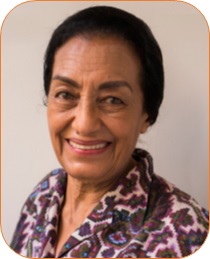 Dr Habiba Hassan-Wassef obtained high quality training in clinical, laboratory as well as public health nutrition research in Egypt, before further developing her academic career in France and the United States. Policy related aspects of her career were developed through twenty years of service with the World Health Organization. Dr. Hassan-Wassef’s knowledge and expertise was further strengthened through continued national and regional research and expert services in Europe, the Middle-East, and Africa. Dr Habiba is an Africa Nutrition Society Trustee and member of the African Leaders for Nutrition Technical Advisory Group. She is author of several scientific publications and received a number of national and international awards in recognition of her contribution to health and nutrition. Dr Habiba is laureate of the 2016 Africa Nutrition Award for North Africa.
Dr Habiba Hassan-Wassef obtained high quality training in clinical, laboratory as well as public health nutrition research in Egypt, before further developing her academic career in France and the United States. Policy related aspects of her career were developed through twenty years of service with the World Health Organization. Dr. Hassan-Wassef’s knowledge and expertise was further strengthened through continued national and regional research and expert services in Europe, the Middle-East, and Africa. Dr Habiba is an Africa Nutrition Society Trustee and member of the African Leaders for Nutrition Technical Advisory Group. She is author of several scientific publications and received a number of national and international awards in recognition of her contribution to health and nutrition. Dr Habiba is laureate of the 2016 Africa Nutrition Award for North Africa.
Isaac J. M. Kasana
Chief Executive Officer (CEO) of Research and Education Network for Uganda (RENU)
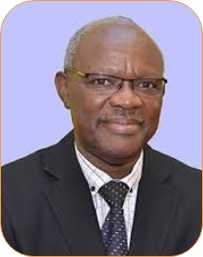 Isaac J. M. Kasana is the Chief Executive Officer (CEO) of Research and Education Network for Uganda (RENU) since June 2013 and is a member of the board of trustees of UbuntuNet Alliance for Research and Education Networking (the regional REN covering 26 Eastern and Southern African countries).
Isaac J. M. Kasana is the Chief Executive Officer (CEO) of Research and Education Network for Uganda (RENU) since June 2013 and is a member of the board of trustees of UbuntuNet Alliance for Research and Education Networking (the regional REN covering 26 Eastern and Southern African countries).
Before joining RENU, he served for almost 8 years as ICT Director at Uganda Christian University (UCU), was part of the interim task-team charged with the operationalization of the resolution made in January 2006 by Vice Chancellors and Executive Directors of Research Institutions of Uganda, to establish a national research and education Network (NREN). He has long experience in ICT4D and in leadership.
He is an Electrical Engineer from Makerere University, a corporate member of Uganda Institution of Professional Engineers (MUIPE), a registered Engineer (R. Eng.) in Uganda and a member of IEEE (MIEEE). He served on the UIPE council for 2 years, on the UIPE accreditation committee for 2 years until April 2018 and has been a council member of the Institute of certified Public Accountants of Uganda (ICPAU) for 2 years until September 2018.
He is serving on the appointments and staff welfare board of Uganda Christian University (UCU), is married to Damallie and they have 4 adult children.
Prof. Jude Lubega
Deputy Vice Chancellor of Uganda Technology and Management University
 Jude Lubega is a Professor of Information Technology who has vast experience in ICT4D. He is currently the Deputy Vice Chancellor of Uganda Technology and Management University. He previously served in Makerere University from 2007 t0 2012 as the Deputy Dean and the Head of the Information Technology Department in the College of Computing and Information Sciences. He is the Chief Executive Officer for Eight Tech Consults one of the leading ICT consulting companies in Uganda.
Jude Lubega is a Professor of Information Technology who has vast experience in ICT4D. He is currently the Deputy Vice Chancellor of Uganda Technology and Management University. He previously served in Makerere University from 2007 t0 2012 as the Deputy Dean and the Head of the Information Technology Department in the College of Computing and Information Sciences. He is the Chief Executive Officer for Eight Tech Consults one of the leading ICT consulting companies in Uganda.
He is an experienced ICT4D consultant and has undertaken numerous researches and projects both nationally and internationally. He is a member of several boards and has won several research funding to undertake ICT4D projects. He is formerly a researcher and Lecturer in the School of Systems Engineering at the University of Reading, UK. He has been involved in developing several information systems including election monitoring using mobile devices.
His research interests include Tracking and Assessment in e-learning, Content Authoring, Multimedia, Multi-Agent Systems, Data Warehousing, Knowledge Representation, ICT for Development (E-Governance, E-Health, E-Agriculture), Mobile Computing, ICT Strategic Planning and Management, Web-based Systems and Mobile Learning. He has published widely in journal, books and conference proceedings.
Prof. Ki Hee Ryu
 Prof. Ki Hee Ryu, received the B.S. and M.S. degrees in Agricultural Engineering. from Seoul National University (SNU) in 1976 and 1981, respectively, and the Ph.D. degree in Agricultural Engineering from Colorado State University (CSU), Fort Collins, USA, in 1988. He worked as Unit Head, Agriculture and Irrigation Unit, Mekong River Commission Secretariat, Bangkok Thailand from 1993 to 1997. He also worked as Head, Portfolio Management Unit, Environment, Natural Resources and Agriculture Division, Southeast Asia Department, Asia Development Bank, Philippines from 1997 to 2013. Since 2013, he has been a faculty member at the Institute of Green Bio Science and Technology, Seoul National University, Seoul, Korea. He has been involved in a research project for combating desertification in Mongolia, and led a rural development project in Chimboraso, Ecuador as a sustainable rural development model in the Andes, and a cashew processing and marketing project as a public private community partnership model in Lao PDR. He also established a university, research institute and industry cooperation model in Korea to enhance productivity and value addition. He is leading a research team to establish a biotechnology center in Uruguary.
Prof. Ki Hee Ryu, received the B.S. and M.S. degrees in Agricultural Engineering. from Seoul National University (SNU) in 1976 and 1981, respectively, and the Ph.D. degree in Agricultural Engineering from Colorado State University (CSU), Fort Collins, USA, in 1988. He worked as Unit Head, Agriculture and Irrigation Unit, Mekong River Commission Secretariat, Bangkok Thailand from 1993 to 1997. He also worked as Head, Portfolio Management Unit, Environment, Natural Resources and Agriculture Division, Southeast Asia Department, Asia Development Bank, Philippines from 1997 to 2013. Since 2013, he has been a faculty member at the Institute of Green Bio Science and Technology, Seoul National University, Seoul, Korea. He has been involved in a research project for combating desertification in Mongolia, and led a rural development project in Chimboraso, Ecuador as a sustainable rural development model in the Andes, and a cashew processing and marketing project as a public private community partnership model in Lao PDR. He also established a university, research institute and industry cooperation model in Korea to enhance productivity and value addition. He is leading a research team to establish a biotechnology center in Uruguary.
Prof. Ryu has formulated many projects in Asia and the Pacific countries during his 16 year services in Asian Development Bank and developed country partnership strategy, and led development results review missions, in particular water resources development, irrigation management, and disaster recovery programs including floods in Bangladesh, Philippines, Nepal, earthquake in Pakistan, tsunami in the Maldives. His major interest is sustainable development goals 2 and 6, food security and water resources and waste management.
He is still active in international development activities as a Board Director of the World Toilet Association, Board Director of the Asia Pacific Agriculture Policy Forum and Vice Chairman of the Water Policy Committee of the Asia Water Council. He is keen to apply his development experiences from regional development agencies to the developing countries through applying appropriate technologies and innovation models suitable to local conditions.
Dr Kiran Sharma
Deputy Director General-Research (acting), International Crops Research Institute forthe Semi-Arid Tropics (ICRISAT)
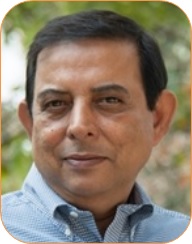 Dr Kiran Sharma is currently the Deputy Director General-Research (acting) at the International Crops Research Institute forthe Semi-Arid Tropics (ICRISAT). He is also Theme Leader for the Agribusiness and Innovation Platform (AIP), and Principal Scientist- Cell & Molecular Biology at ICRISAT), based in Hyderabad/India. Dr Sharma leads AIP as it’s CEO devising strategies for project/program planning and management, Agribusiness Entrepreneurships, public-private partnerships and value-addition for nutritional enhancement to address malnutrition, hunger and poverty through inclusive market-oriented development.
Dr Kiran Sharma is currently the Deputy Director General-Research (acting) at the International Crops Research Institute forthe Semi-Arid Tropics (ICRISAT). He is also Theme Leader for the Agribusiness and Innovation Platform (AIP), and Principal Scientist- Cell & Molecular Biology at ICRISAT), based in Hyderabad/India. Dr Sharma leads AIP as it’s CEO devising strategies for project/program planning and management, Agribusiness Entrepreneurships, public-private partnerships and value-addition for nutritional enhancement to address malnutrition, hunger and poverty through inclusive market-oriented development.
With a PhD from the University of Delhi in Botany (Experimental Plant Morphogenesis), and post-doctoral training from the University of Calgary in Canada, Dr Sharma has over twenty five years experience in genetic engineering and molecular biology for crop improvement, performing multidisciplinary research with a thorough understanding of the global agricultural R&D trends, needs and challenges. Dr. Sharma has led several projects with multiple partners and has been proactively involved in policy and regulatory issues related to biotechnology and intellectual property rights in India and the region. He has over 150 publications with a H-index of 34 and citations exceeding 5,000. He has supervised several undergraduate and post-graduate students, and post-doctoral fellows. Dr. Sharma was instrumental in establishing the Platform for Translational Research in Transgenic Crops (PTTC) in 2007 that facilitates translation of genetic engineering technologies and proof-of-concepts to value added products. He played a key role in establishing an Agri-Business Incubator@ICRISAT in 2003, that has won several accolades as a successful model for public-private sector partnerships and entrepreneurship development. His most recent engagement has been in the establishment of a Bio-Incubator (BioNcube) in 2017 to support startups in advanced biotechnologies. He also serves on several committees on biotechnology, entrepreneuership development, agibusiness, and public-private partnerships.
Lucas Rutting
Scenarios and policy researcher, CGIAR Research Program on Climate Change, Agriculture and Food Security (CCAFS)
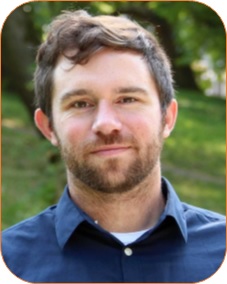 Lucas Rutting is a scenarios and policy researcher at the CGIAR Research Program on Climate Change, Agriculture and Food Security (CCAFS). As such, he focuses on foresight-guided policy formulation processes related to agriculture, food security, land use, livelihoods, biodiversity and the environment in West and East Africa on both the regional and (sub-)national level. He has experience with participatory scenario-planning in a range of African countries, including Ghana, Burkina Faso, Kenya, Ethiopia, Rwanda, Uganda and Tanzania. He is currently based at the Copernicus Institute of Sustainable Development, Utrecht University, the Netherlands. He is part of the Environmental Governance Group and his research aims to improve foresight for social-ecological systems governance. Prior to joining Utrecht University, Lucas Rutting has worked as a scenarios researcher at the Environmental Change Institute at Oxford University and as a lecturer on interdisciplinary sustainability studies at the University of Amsterdam, including courses on scenario-planning.
Lucas Rutting is a scenarios and policy researcher at the CGIAR Research Program on Climate Change, Agriculture and Food Security (CCAFS). As such, he focuses on foresight-guided policy formulation processes related to agriculture, food security, land use, livelihoods, biodiversity and the environment in West and East Africa on both the regional and (sub-)national level. He has experience with participatory scenario-planning in a range of African countries, including Ghana, Burkina Faso, Kenya, Ethiopia, Rwanda, Uganda and Tanzania. He is currently based at the Copernicus Institute of Sustainable Development, Utrecht University, the Netherlands. He is part of the Environmental Governance Group and his research aims to improve foresight for social-ecological systems governance. Prior to joining Utrecht University, Lucas Rutting has worked as a scenarios researcher at the Environmental Change Institute at Oxford University and as a lecturer on interdisciplinary sustainability studies at the University of Amsterdam, including courses on scenario-planning.
In addition to his scenarios work in Africa, Lucas has been involved in other foresight projects, including the EU-funded project TRANSMANGO, which focused on the future of food production in the EU, and a COST-project on scenario-planning for future biological invasions in the EU. Besides his teaching at the University of Amsterdam, he has also been involved in education on foresight at Utrecht University and Wageningen University. During the panel session, Lucas will address issues related to participatory foresight for policy formulation, drawing on his experience in Africa.
Luisa Santos, PhD
Independent Expert in Integrated Pest Management in Agriculture
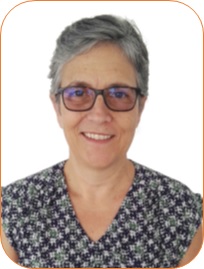 Luisa Santos is an independent expert in integrated pest management in agriculture. She retired in 2017 after a career at Eduardo Mondlane University (UEM), Mozambique. For more than 35 years she has teaching, research and extension work have been focused on the design, implementation, monitoring and evaluation of integrated pest management programs for small scale farmers in Mozambique in various cropping systems. She led several research and extension and development projects such as the Integrated pest management national program for Cabbage Diamond Back Moth (DBM), the crop diversification and integrated management of cotton pests for small scale farmers, and the Lethal Yellowing Coconut Disease project aimed at the establishment of Pest Free Areas Regarding Lethal Yellowing Disease of Coconuts in Mozambique.
Luisa Santos is an independent expert in integrated pest management in agriculture. She retired in 2017 after a career at Eduardo Mondlane University (UEM), Mozambique. For more than 35 years she has teaching, research and extension work have been focused on the design, implementation, monitoring and evaluation of integrated pest management programs for small scale farmers in Mozambique in various cropping systems. She led several research and extension and development projects such as the Integrated pest management national program for Cabbage Diamond Back Moth (DBM), the crop diversification and integrated management of cotton pests for small scale farmers, and the Lethal Yellowing Coconut Disease project aimed at the establishment of Pest Free Areas Regarding Lethal Yellowing Disease of Coconuts in Mozambique.
In the past 15 years her work has also focused on developing quality assurance systems in higher education. From 2001 to 2004 she chaired the national commission, appointed by the Minister of Higher Education, Science and Technology, for the introduction of a national system for evaluation and accreditation in higher education that led to the approval by the Council of Ministers, in 2007, of the first national regulations on quality assurance in Mozambique. From 2013 to 2017 she was the Director of Quality Assurance Office of UEM responsible for introducing the first quality assurance system at university level. Under her leadership, GQA developed self-evaluation manuals and tools including quality indicators and standards, data collection tools and assessment methodologies, as well as several training modules for faculty and staff. More than 80 programs have been self-evaluated from 2013 to 2018, and more than 20 have been submitted for accreditation.
Prof. Luke Evuta Mumba
Vice-Chancellor, University of Zambia and a RUFORUM Board Executive Committee Member
 Professor Luke Evuta Mumba is the Vice-Chancellor of the University of Zambia and a RUFORUM Board Executive Committee Member. He returned to the University of Zambia from the Diaspora in July 2016, after 10 years of service at the African Union’s New Partnership for Africa’s Development Planning and Coordinating Agency (NPCA) in South Africa.
Professor Luke Evuta Mumba is the Vice-Chancellor of the University of Zambia and a RUFORUM Board Executive Committee Member. He returned to the University of Zambia from the Diaspora in July 2016, after 10 years of service at the African Union’s New Partnership for Africa’s Development Planning and Coordinating Agency (NPCA) in South Africa.
His last portfolio in NPCA was that of Coordinator of the African Science, Technology and Innovation Indicators (ASTII) Initiative. This is a continent-wide programme whose goal is to improve the quality of Science, Technology and Innovation (STI) policies in Africa. He also held the position of Regional Director for the Southern Africa Network for Biosciences (SANBio) in the same organization, responsible for R&D and capacity development programmes in life sciences for the Southern Africa Development Community (SADC) region. He also served as Coordinator of NPCA Regional Centres and Initiatives. In this position Professor Mumba was coordinating a consortium of 5 sub-regional Biosciences Centres of Excellence namely in the Five sub-region of Africa.
In 2013 Professor Mumba was profiled as one of the 10 extraordinary African Professionals in Science in Africa in a publication by the Technical Centre for Agricultural and Rural Cooperation (CTA) and the International Foundation for Science (IFS).
Professor Ansu D. Sonii, Sr.,
Minister of Education Republic of Liberia
Professor Ansu D. Sonii Sr., has spent four decades in the classroom providing instructional services at the primary, junior secondary and tertiary levels in the Republic of Liberia. For the most part of the years indicated, he served particularly at the University of Liberia (UL), the Nation’s Premier Institution of Tertiary education. For two years while at the University, he also served at the Stella Maris Polytechnic as an adjunct faculty. Enrolled as Instructor on the faculty of Accounting at the University in the early 1980s, the now Minister of Education was privileged to have been appointed to several key instructional and administrative posts during thirty (30) years of continuous service at that Institution. Commencing as Chair of the Program in Accounting, he was appointed Dean of the College of Business and Public Administration, Acting Vice President for Academic Affairs and Vice President for Administration respectively, the position he held until retirement in December 2014. Post retirement, Prof. Sonii remains engaged at the University of Liberia as Adjunct faculty with assignment in the Graduate School of Business Administration, teaching financial and advanced accounting intermittently.
Prof. Aiah A. Gbakima
Minister of Technical and Higher Education, Government of Sierra Leone
 Prof. Aiah A. Gbakima is the Minister of Technical and Higher Education in the present Government of Sierra Leone. Before his appointment, he was the Country Director of Metabiota Inc. representing the headquarters in San Francisco, California and the Office in Washington DC. He was also the Country Coordinator of the USAID/Predict in Sierra Leone. In addition, he served as a voluntary member on the CDC Ebola Vaccine Trial Data Management Safety Board (DMSB). He has also been the Editor-in-Chief of the Sierra Leone Journal of Biomedical Research (SLJBR), which is a member of the African Journal Partnership Project (AJPP). He chaired the Sierra Leone Health and Biomedical Research Association (HBIOMEDSL) and he is a former Professor of Microbiology, College of Medicine and Allied Health Sciences (COMAHS), University of Sierra Leone. Prior to joining Metabiota Inc., Professor Gbakima was a Consultant to the Global Fund for HIV/AIDS, Malaria and Tuberculosis for a year, serving as the Monitoring and Evaluation Consultant for Tuberculosis. Before that, he was the Vice Chancellor and Principal (2005-2009) of the University of Sierra Leone (USL) and in that position, Professor Gbakima was the Chief Academic and Administrative head of the University of Sierra Leone, which constituted, the College of Medicine and Allied Health Sciences (COMAHS), Fourah Bay College (FBC) and the Institute of Public Administration and Management (IPAM). In the position as Vice Chancellor and Principal, he was a statutory member of Statistics Sierra Leone Council, a member and later Chair of the Bank of Sierra Leone Trust Fund. The late President Kabba honoured him with a National award, Grand Commander of the Order of the Rokel (GCOR).
Prof. Aiah A. Gbakima is the Minister of Technical and Higher Education in the present Government of Sierra Leone. Before his appointment, he was the Country Director of Metabiota Inc. representing the headquarters in San Francisco, California and the Office in Washington DC. He was also the Country Coordinator of the USAID/Predict in Sierra Leone. In addition, he served as a voluntary member on the CDC Ebola Vaccine Trial Data Management Safety Board (DMSB). He has also been the Editor-in-Chief of the Sierra Leone Journal of Biomedical Research (SLJBR), which is a member of the African Journal Partnership Project (AJPP). He chaired the Sierra Leone Health and Biomedical Research Association (HBIOMEDSL) and he is a former Professor of Microbiology, College of Medicine and Allied Health Sciences (COMAHS), University of Sierra Leone. Prior to joining Metabiota Inc., Professor Gbakima was a Consultant to the Global Fund for HIV/AIDS, Malaria and Tuberculosis for a year, serving as the Monitoring and Evaluation Consultant for Tuberculosis. Before that, he was the Vice Chancellor and Principal (2005-2009) of the University of Sierra Leone (USL) and in that position, Professor Gbakima was the Chief Academic and Administrative head of the University of Sierra Leone, which constituted, the College of Medicine and Allied Health Sciences (COMAHS), Fourah Bay College (FBC) and the Institute of Public Administration and Management (IPAM). In the position as Vice Chancellor and Principal, he was a statutory member of Statistics Sierra Leone Council, a member and later Chair of the Bank of Sierra Leone Trust Fund. The late President Kabba honoured him with a National award, Grand Commander of the Order of the Rokel (GCOR).
Stephen Muchiri
CEO of Eastern Africa Farmers Federation (EAFF)
 Stephen has been working in the Agriculture sector for the last 17 years and is a holder of a Msc in Horticulture. He is the CEO of Eastern Africa Farmers Federation (EAFF) which is a regional network of national farmer unions, federations and co-operatives in 10 countries. Previously Stephen worked with leading Horticulture export companies in Kenya in senior management as Farms General Manager & as an Outgrowers Manager, he currently sits in boards and committtes of regional and international agriculture organizations.
Stephen has been working in the Agriculture sector for the last 17 years and is a holder of a Msc in Horticulture. He is the CEO of Eastern Africa Farmers Federation (EAFF) which is a regional network of national farmer unions, federations and co-operatives in 10 countries. Previously Stephen worked with leading Horticulture export companies in Kenya in senior management as Farms General Manager & as an Outgrowers Manager, he currently sits in boards and committtes of regional and international agriculture organizations.
EAFF is currently managing a new strategic plan (2013-2020) whose focus is Enterpreneurship and has a specific interest in use of new ICTs4Ag to aggregate farmers for output and input markets and in so doing has led to the development and deployment of the E-granary which is a mobile platform that helps aggregate virtually farmers for input and output markets and various services such as micro credit, micro insurance and e-extension
Gaspard Banyankimbona
Minister of Higher Education and scientific research, Republic of Burundi
 Currently Minister of Higher Education and scientific research, Republic of Burundi, Mr. Gaspard Banyankimbona has successfully completed his University studies in Burundi and Belgium. After his Bachelor degree at the University of Burundi in 2003, he was appointed Assistant Lecturer in the Department of Biology at the Faculty of Science, University of Burundi, a position held one year before starting a postgraduate training program in Belgium where he obtained a diploma in specialized studies in aquaculture at the University of Liège in 2006 and a PhD degree in Sciences at the Katholieke Universiteit Leuven in Belgium in 2012. As Lecturer and researcher in ecology and conservation of fish, Laboratory of biodiversity, ecology and environment, Natural Sciences and Environment Research Centre, at the University of Burundi, he was able to publish his results in international journals and had the opportunity to participate in many national and international conferences and symposia and was the Chair of the Organizing committee of the Burundese National Education Forum, held in Bujumbura December 02-05th, 2014.
Currently Minister of Higher Education and scientific research, Republic of Burundi, Mr. Gaspard Banyankimbona has successfully completed his University studies in Burundi and Belgium. After his Bachelor degree at the University of Burundi in 2003, he was appointed Assistant Lecturer in the Department of Biology at the Faculty of Science, University of Burundi, a position held one year before starting a postgraduate training program in Belgium where he obtained a diploma in specialized studies in aquaculture at the University of Liège in 2006 and a PhD degree in Sciences at the Katholieke Universiteit Leuven in Belgium in 2012. As Lecturer and researcher in ecology and conservation of fish, Laboratory of biodiversity, ecology and environment, Natural Sciences and Environment Research Centre, at the University of Burundi, he was able to publish his results in international journals and had the opportunity to participate in many national and international conferences and symposia and was the Chair of the Organizing committee of the Burundese National Education Forum, held in Bujumbura December 02-05th, 2014.
Mr. Gaspard Banyankimbona had a rather successful professional career. Head of Department of Biology at the Faculty of Science of the University of Burundi December 2012 up to May 2013, he successively occupied the position of Permanent Secretary in the Ministry of Higher Education and scientific research until December 2014 and then Vice-Chancellor of the University of Burundi until April 19th, 2018 date of his appointment as Minister of higher Education and Scientific Research. He has been a member of the boards of several national and international academic institutions and has been a delegate of Burundi to UNESCO's general conferences since 2012. He is a member of Pan African Fish and Fisheries Association which held its 6th conference last month in Malawi.
Eugénio Aldofo Alves da Silva
Minister of Higher Education, Science, Technology and Innovation
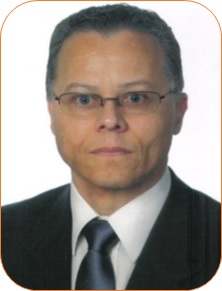 Eugénio Alves da Silva has been a professor for 42 years, 35 of which in higher education. He was a teacher at all levels of education in Angola. He holds a bachelor's degree in Educational Sciences in Agostinho Neto University and a doctorate in Education, in the field of Organization and School Administration, from the University of Minho (Portugal), where he has been a professor-researcher for 20 years.
Eugénio Alves da Silva has been a professor for 42 years, 35 of which in higher education. He was a teacher at all levels of education in Angola. He holds a bachelor's degree in Educational Sciences in Agostinho Neto University and a doctorate in Education, in the field of Organization and School Administration, from the University of Minho (Portugal), where he has been a professor-researcher for 20 years.
He taught master's degrees at Agostinho Neto University (Angola), at the Pedagogical University of Mozambique, at the National University of East Timor and at a Federal Polytechnic Institute of Education, in Brazil.
He is the author of 75 published works (5 books, 16 chapters in books, 13 articles in scientific journals and 41 communications in events proceedings), most of them on the Angolan educational system and university administration.
Youssef Travaly
Next Einstein Forum (NEF) Vice-President of Science, Innovation & Institutional Partnerships
Youssef Travaly, PhD, MBA, is the Next Einstein Forum (NEF) Vice-President of Science, Innovation & Institutional Partnerships. He is in charge of articulating the NEF’s scientific and technological ambitions including managing the policy aspects as well as the NEF’s Global Gathering program. The NEF Global Gatherings are Africa’s premier scientific event held every two years in a different African country. Youssef also manages the NEF Community of Scientists, an exclusive community that offers members opportunities for consulting, grants, research collaborations, speaking opportunities and career mentorship. Youssef holds an MBA together with a PhD in Materials Science. Following a 2-year postdoc in the USA working on semiconductor and biomedical research, he joined IMEC, a research centre for next generation electronic devices, and then Ion Beam Application (IBA), the world’s leading integrated solution supplier for cancer treatment to work on cancer treatment solutions by proton therapy.
Dr. Travaly has been the chair and co-chair of several international scientific committees and has in-depth experience in managing national, regional and transcontinental initiatives of strategic importance, with multiple stakeholders in a variety of sectors. Before joining NEF, he was managing a multi-country European project on carbon capture and utilization.
PROF. STEPHEN KIAMA GITAHI, B.V.M., MSc., PhD, MKNAS
Chair of Deans/Principal committee
 Professor Kiama Gitahi, has acquired 15 years uninterrupted hands-on experience at senior level in the university Management. Currently, he is serving as Principal, College of Agriculture and Veterinary Sciences, University of Nairobi. Previously he helped to conceptualize and actualize Wangari Maathai Institute for Peace and Environmental Studies where he served as the founder Director from 2010-to 2016. He has also served as the first Associate Dean of the Faculty of Veterinary Medicine from 2003-2010, and Chairman of the Department of Veterinary Anatomy and Physiology from 2005—2010. He is an accomplished scholar with proven track record in formulating and managing academic programs and of research and publication in peer review journals, and supervising and mentoring Master and PhD students. He has supervised and mentored 12 PhD Students and 14 Masters Students to completion. He has also co-authored over 140 journal and conference publications. Besides authoring several publications and attending National and International scientific conferences, he has a cumulative 28 years of research and teaching experience at various institutions including University of Nairobi, St. Andrews University in Scotland, Free University of Berlin, Germany, University of Bern, Switzerland, University of Witwatersrand, South Africa and University of Ghana where he helped to set up the Anatomy laboratory and to give the first lectures to the inaugural class of Doctor of Veterinary Medicine students.
Professor Kiama Gitahi, has acquired 15 years uninterrupted hands-on experience at senior level in the university Management. Currently, he is serving as Principal, College of Agriculture and Veterinary Sciences, University of Nairobi. Previously he helped to conceptualize and actualize Wangari Maathai Institute for Peace and Environmental Studies where he served as the founder Director from 2010-to 2016. He has also served as the first Associate Dean of the Faculty of Veterinary Medicine from 2003-2010, and Chairman of the Department of Veterinary Anatomy and Physiology from 2005—2010. He is an accomplished scholar with proven track record in formulating and managing academic programs and of research and publication in peer review journals, and supervising and mentoring Master and PhD students. He has supervised and mentored 12 PhD Students and 14 Masters Students to completion. He has also co-authored over 140 journal and conference publications. Besides authoring several publications and attending National and International scientific conferences, he has a cumulative 28 years of research and teaching experience at various institutions including University of Nairobi, St. Andrews University in Scotland, Free University of Berlin, Germany, University of Bern, Switzerland, University of Witwatersrand, South Africa and University of Ghana where he helped to set up the Anatomy laboratory and to give the first lectures to the inaugural class of Doctor of Veterinary Medicine students.
Prof. Kiama is a holder of Bachelor’s of Veterinary Medicine (1990) and Masters of Veterinary Anatomy (1995) degrees from University of Nairobi and Doctor of Philosophy in Structural Biology (2001) from University of Bern. He was employed by the University of Nairobi upon graduation in 1990 as an assistant Lecturer. Since then he has risen through the ranks to position of Professor (2016).
Michael Paul Nampala
Crop Sciences & Public Health Specialist
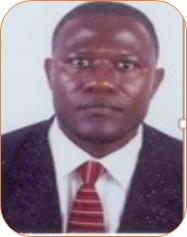
Dr. Paul Nampala, Ugandan is an alumni of Makerere University (BSc. Agric., MSc., PhD) Imperial College University of London (former Wye College, PGD Biometry & Applied Stat.) and University of Liverpool, UK (MPH) with academic training in Crop Protection (majoring in Entomology and Crop Pest Ecology), Biometry and Public Health. He is currently working as Program Manager Research & Innovations with the Regional Universities Forum for Capacity Building in Agriculture (RUFORUM), and formerly Grants Manager at the same organisation. The Research and Innovations docket entails managing grants with a research for development portfolio that covers multidisciplinary projects implemented by inter-and transdisciplinary research teams with intense university engagement targeting development and deployment of interventions at household levels in 35 countries in Africa, under the auspices of the Regional Universities Forum for Capacity Building in Agriculture (RUFORUM), a Network of 105 Member Universities.
I have engaged in research for development in the broad fields of Agriculture and Public Health focusing on capacity building and networking aspects with a view to influence policy for decisions against inequalities and inequities that curtail human development endeavours. I offer lectures, on part-time arrangement, in Crop Protection, Insect Pest Ecology, Biometry, Biosafety, Bio-policy and Bioethics and Environmental Impact Assessment at the Faculty of Agriculture in Makerere University; and Faculty of Science and Technology, Uganda Christian University. Furthermore, I also service as Scientific Editor of the prestigious African Crop Science Journal; Editor of the African Journal of Rural Development and Reviewer of several other high impact journals. Previously worked as Executive Secretary of the Uganda National Academy of Sciences (UNAS) since 2004 to June 2010; Assistant National Project Coordinator for the National Biotechnology and Biosafety Frameworks under the UNEP/GEF Global projects on Biosafety and project Officer of the Uganda National Council for Science and Technology from 2000 to 2004. Served as Board Member (2007 – 2011) of the Global Vaccines Alliance (GAVI) and Published several articles in peer-reviewed high impact journals and a member to several professional and honorific organizations including among others the Uganda National Academy of Sciences (UNAS), the Global Young Academy, the African Science Institute (ASI) and the Association of African Applied Agricultural Economists (AAAAE). Through these engagements, I have proficiently worked under multidisciplinary, multicultural and multiracial environments. I have experience working with several stakeholders on aspects science-for-policy and policy-for-science; and translating scientific research outputs and packaging to inform policy-decisions.
-
Biennial 2018 Count Down
Next Triennial 2021
The 7th African Higher Education Week
22nd - 26th November, 2021
Benin, Porto-Novo
Website visitors
- Total Visitors: 4509
- Unique Visitors: 12
Contacts
For general information about the RUFORUM Biennial Conference 2018, please contact us at :
 biennial@ruforum.org
biennial@ruforum.org
